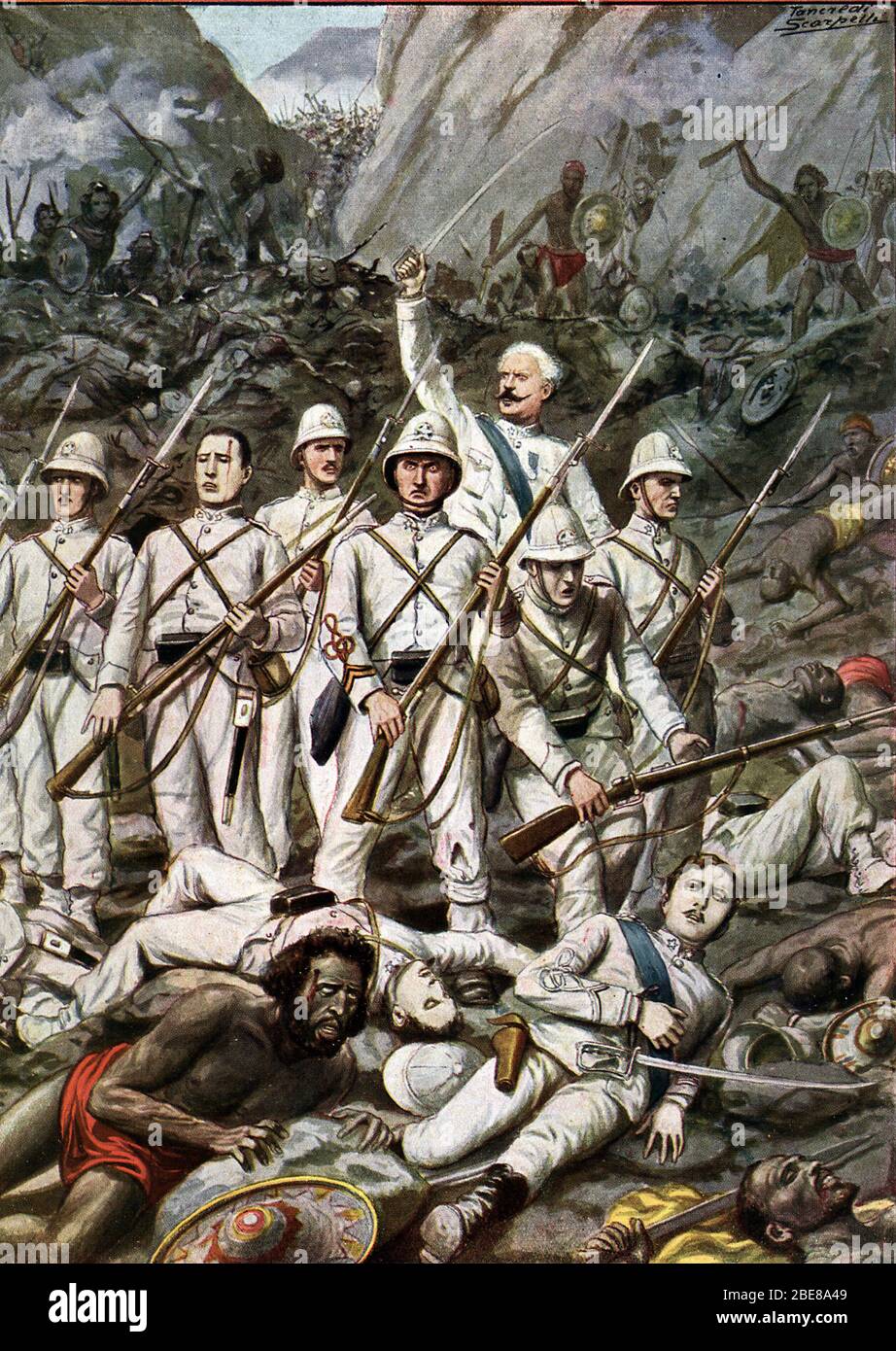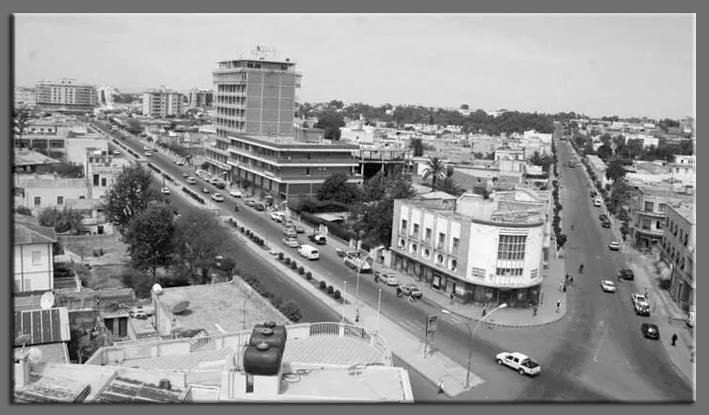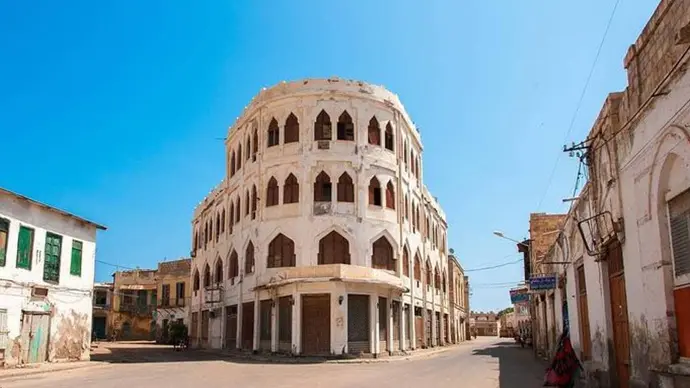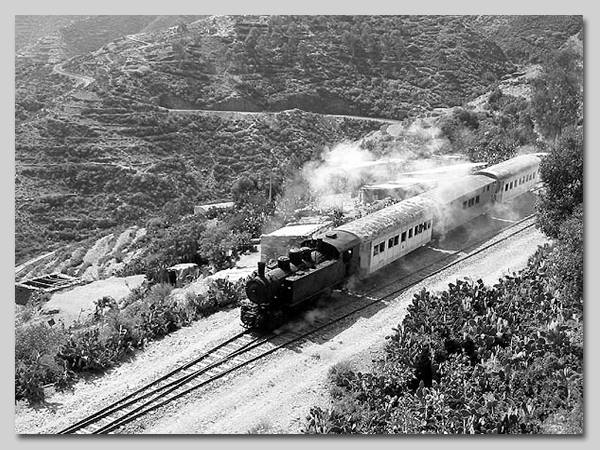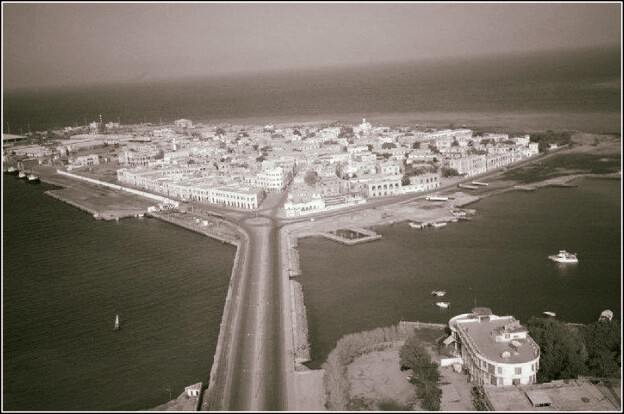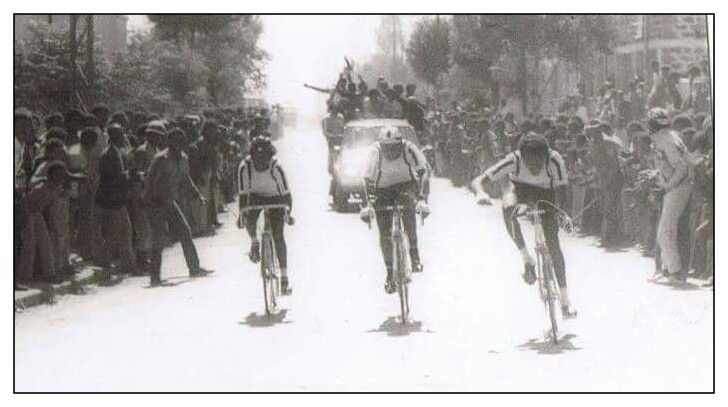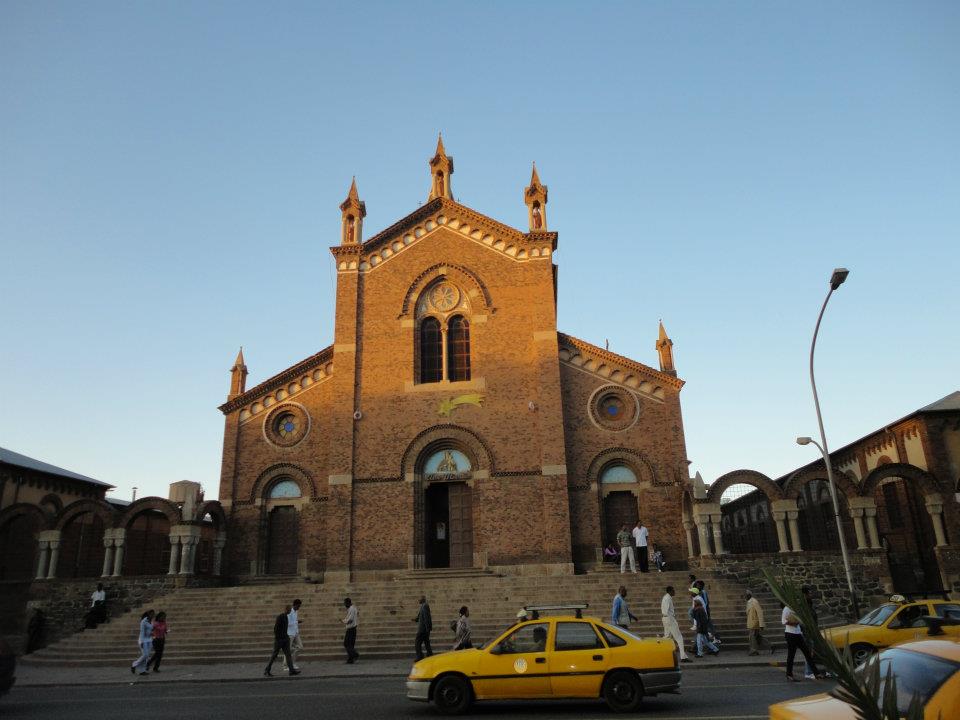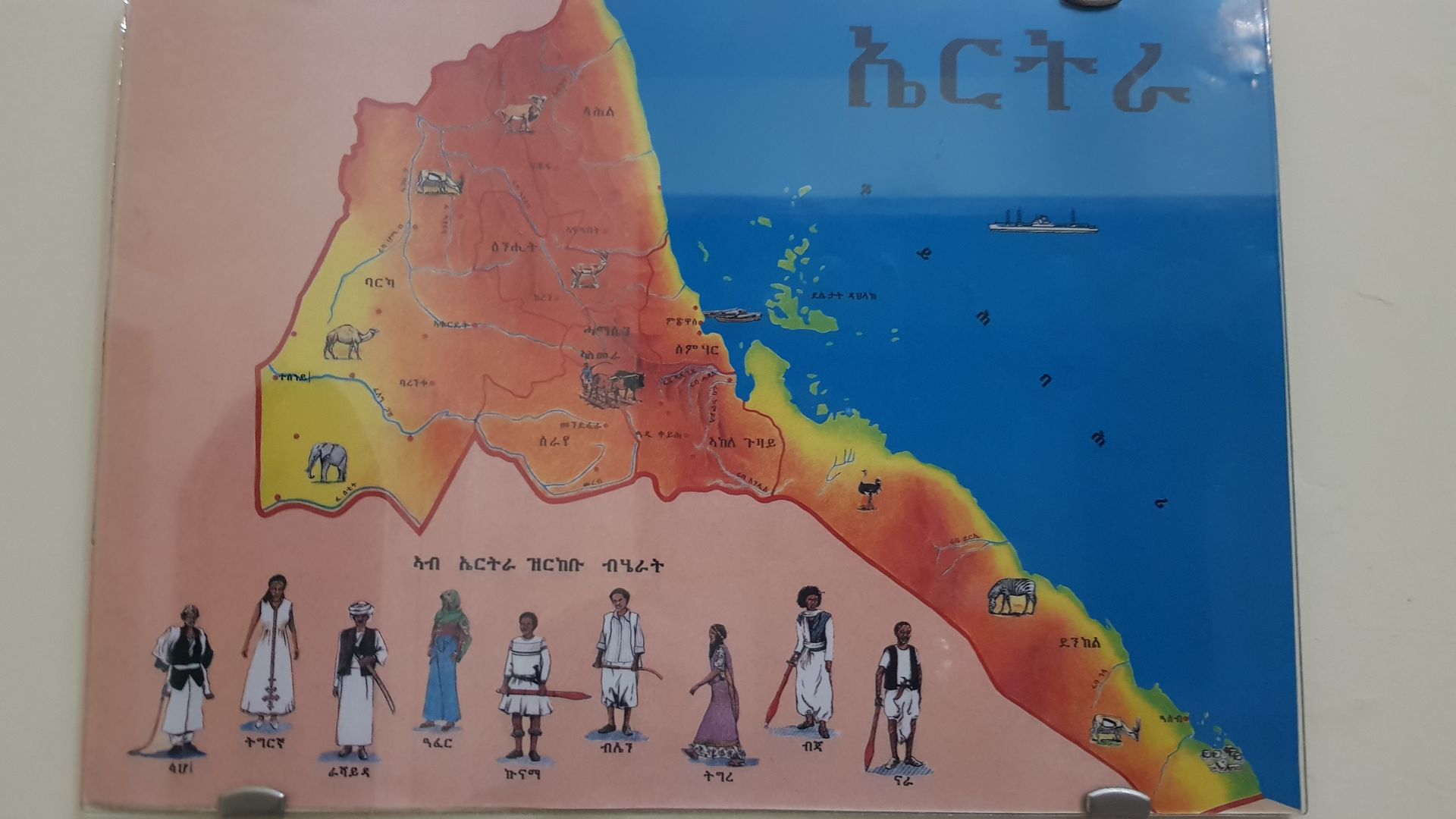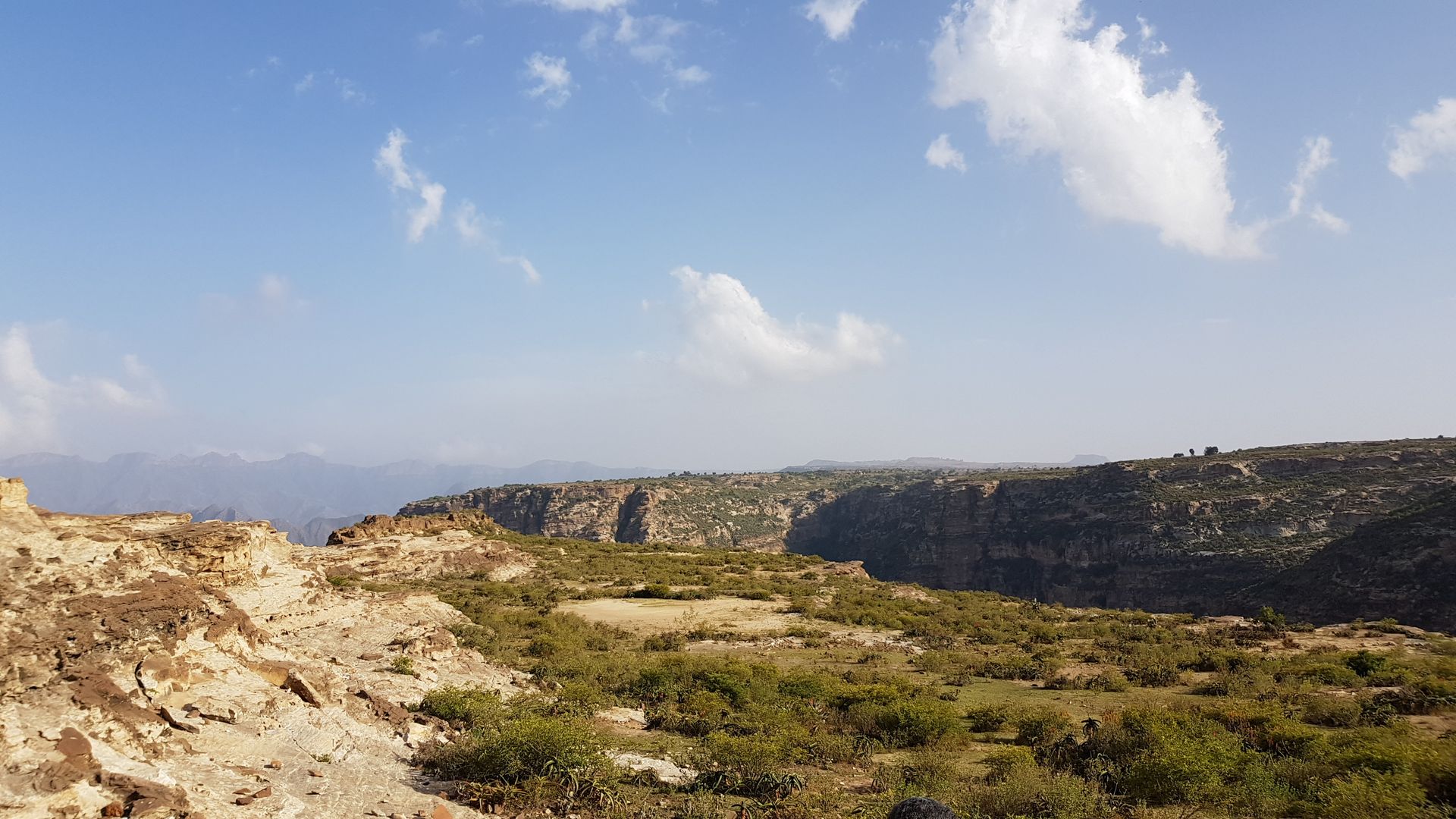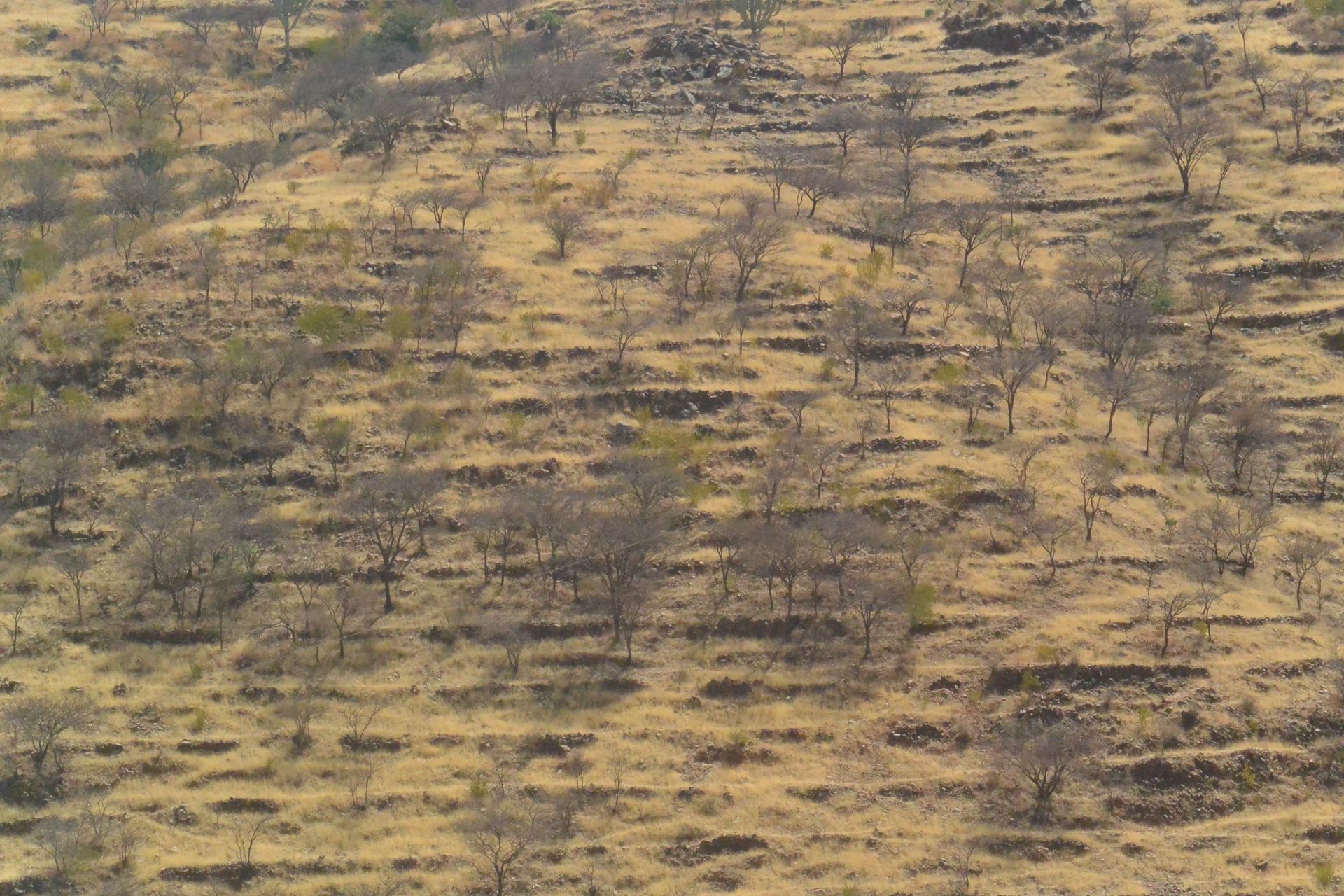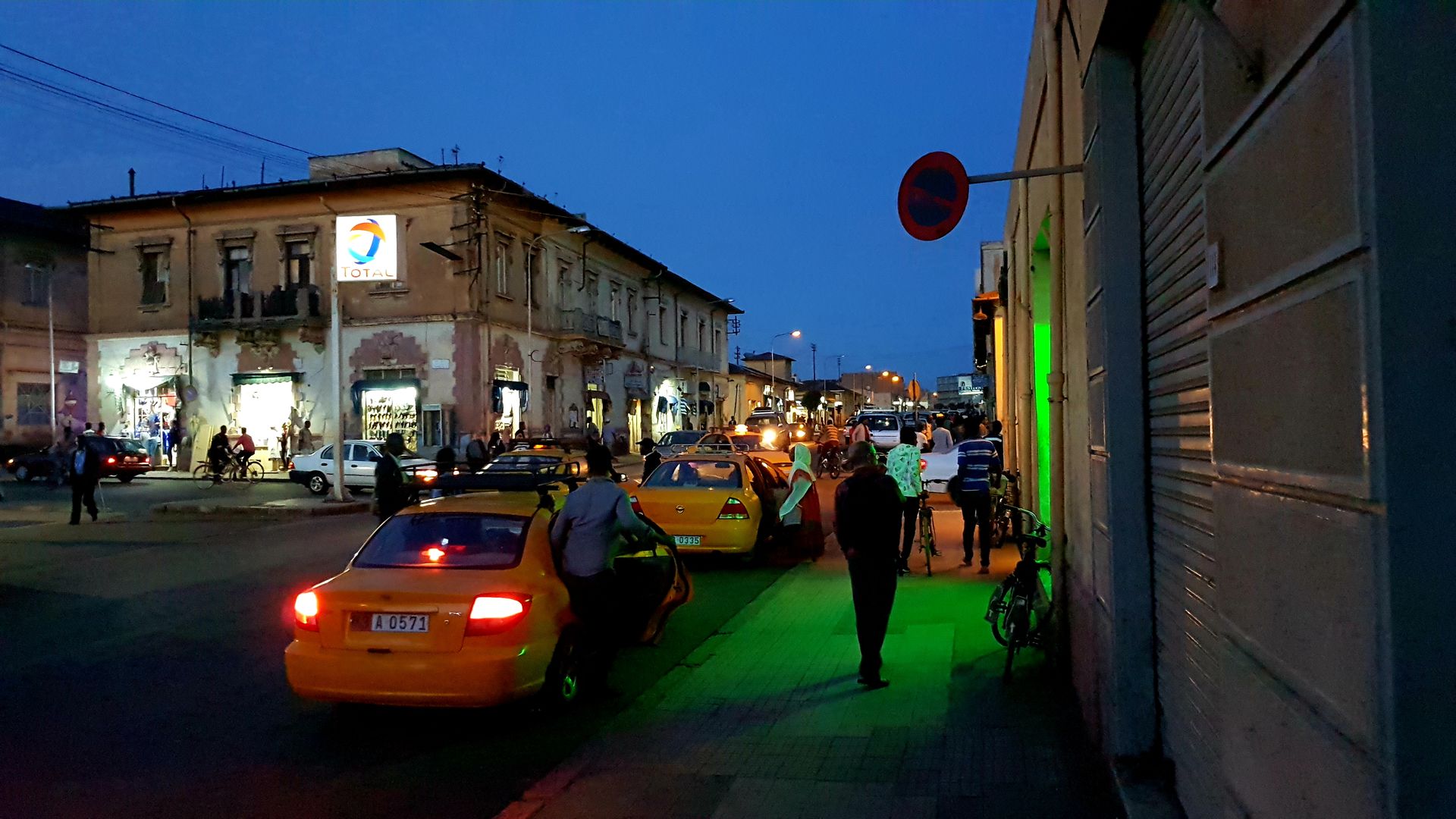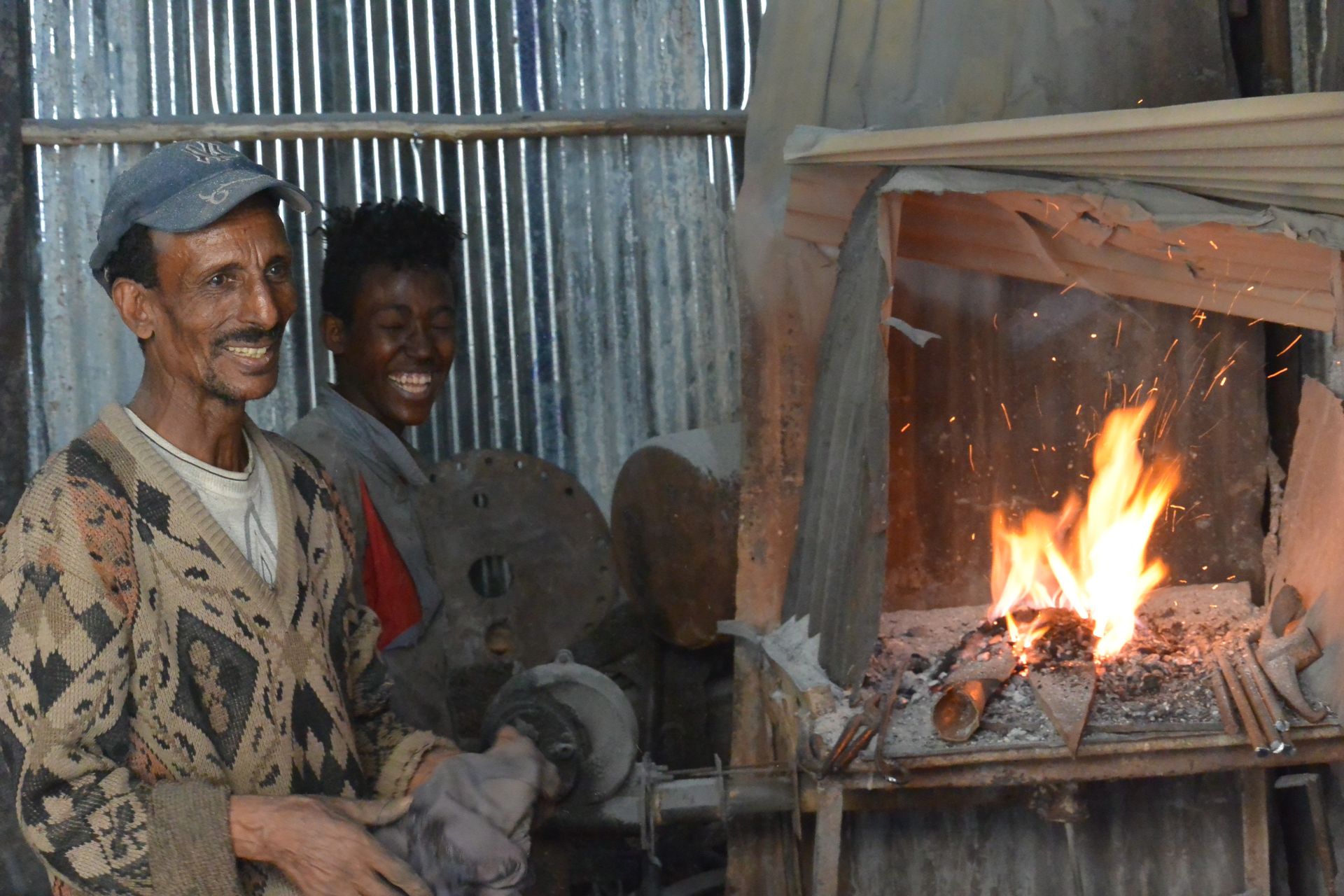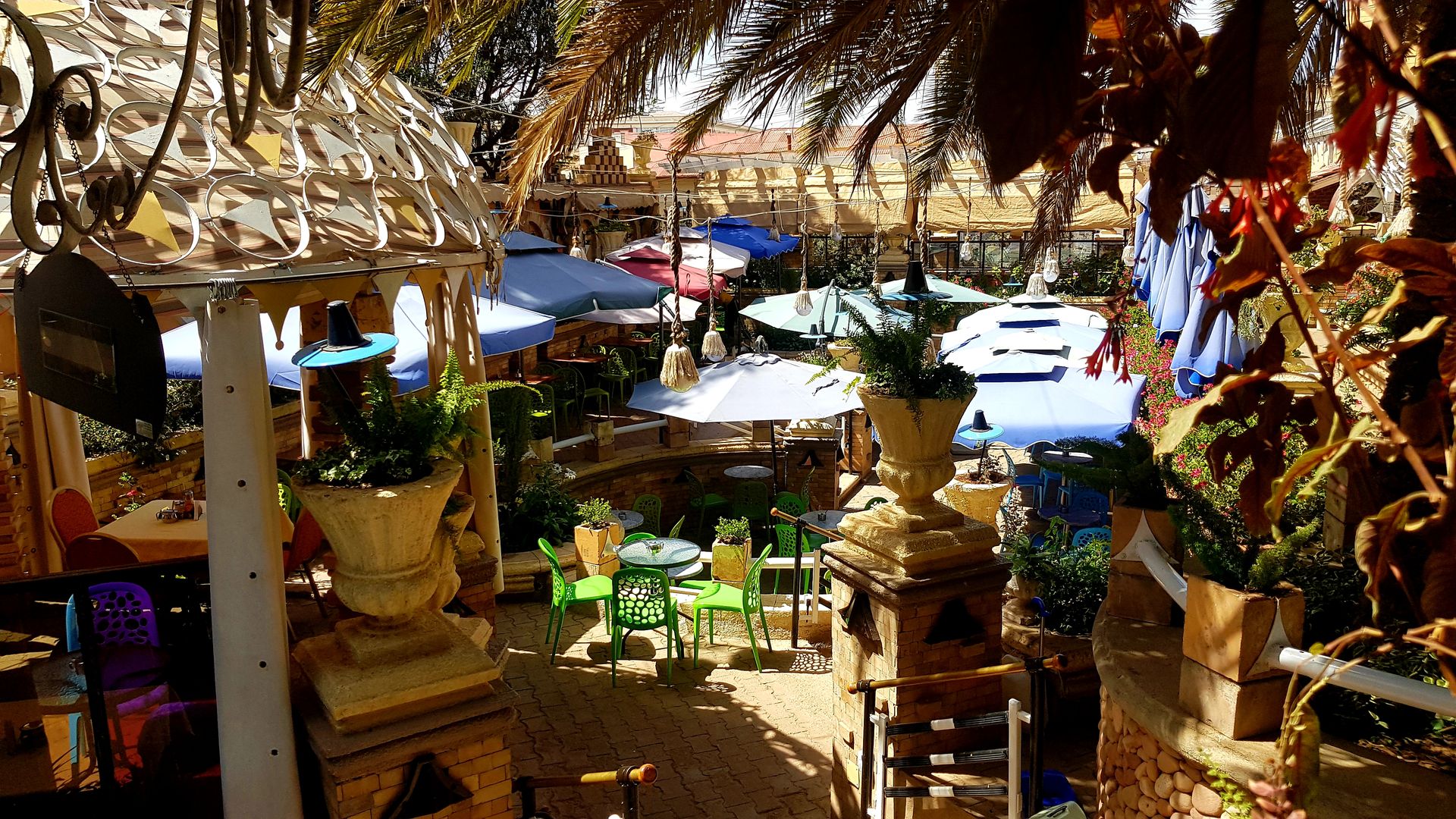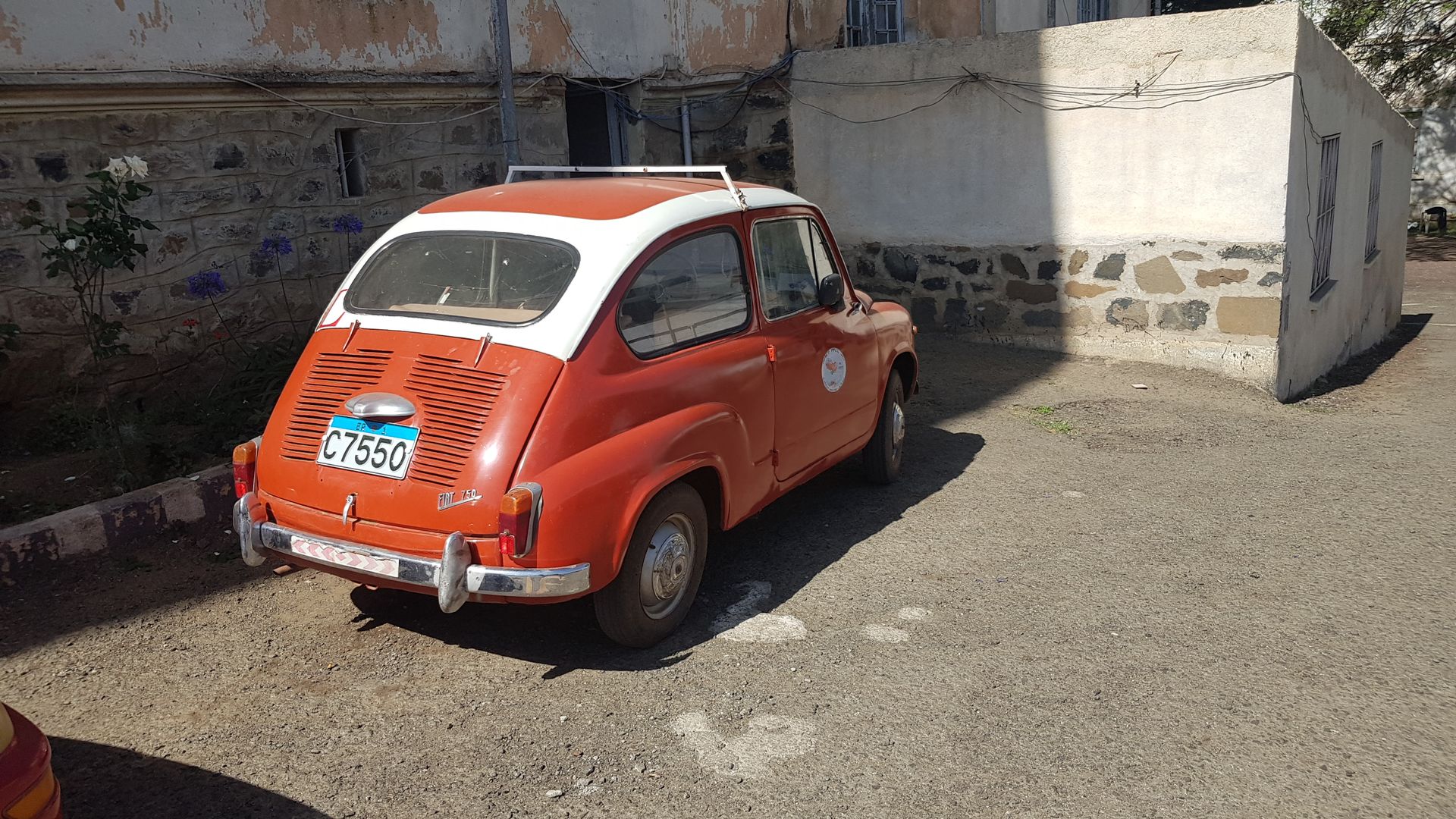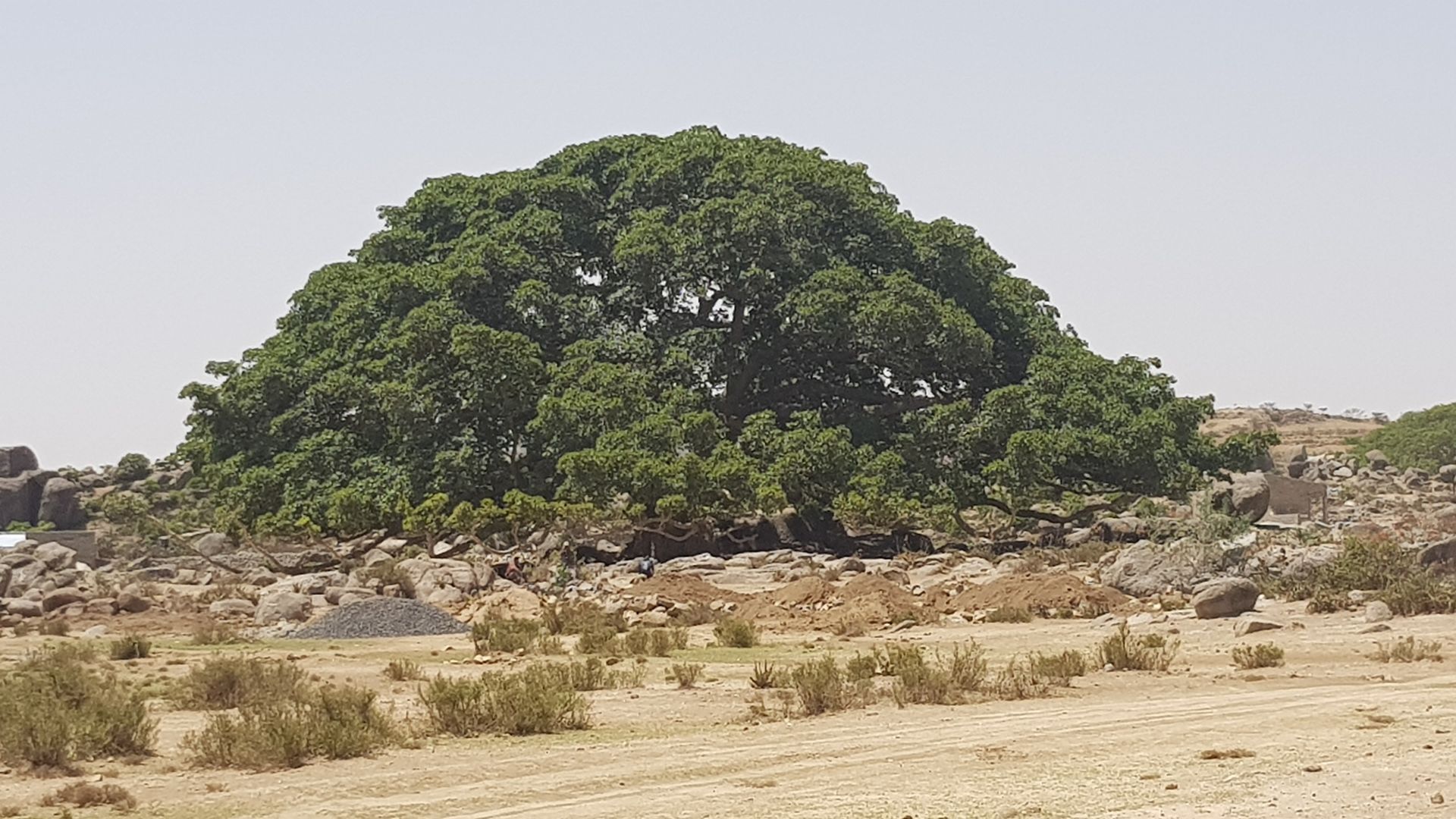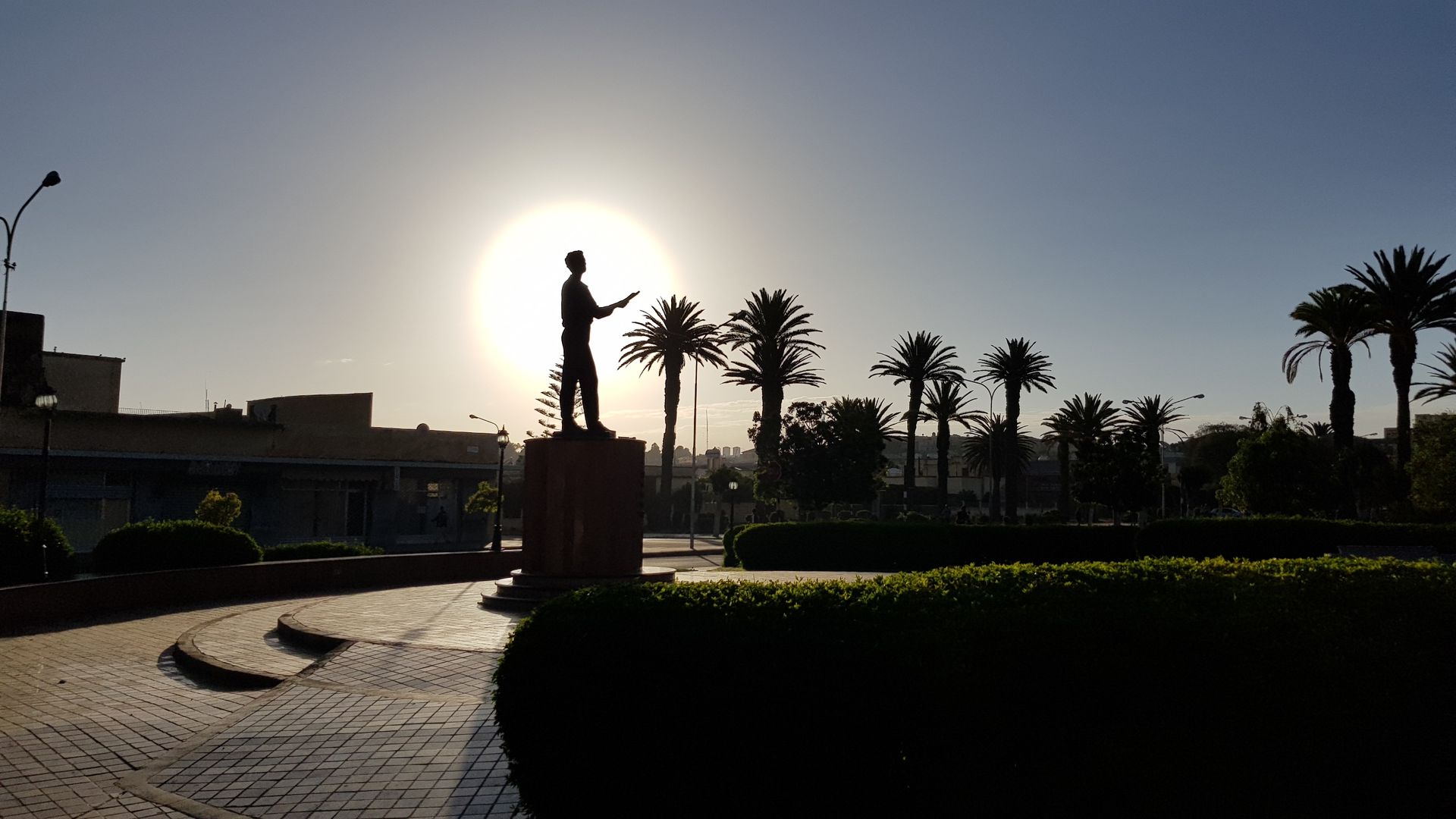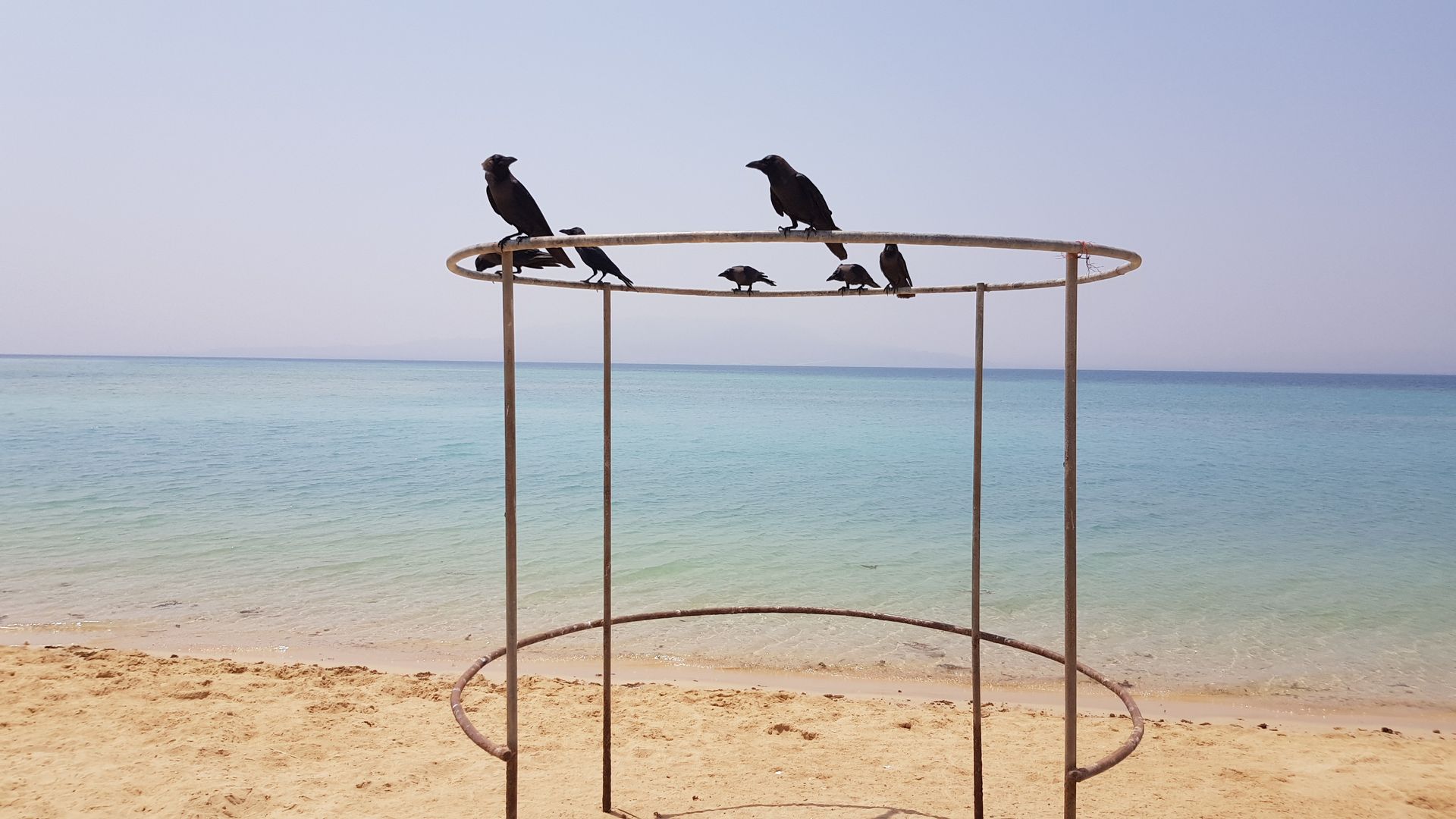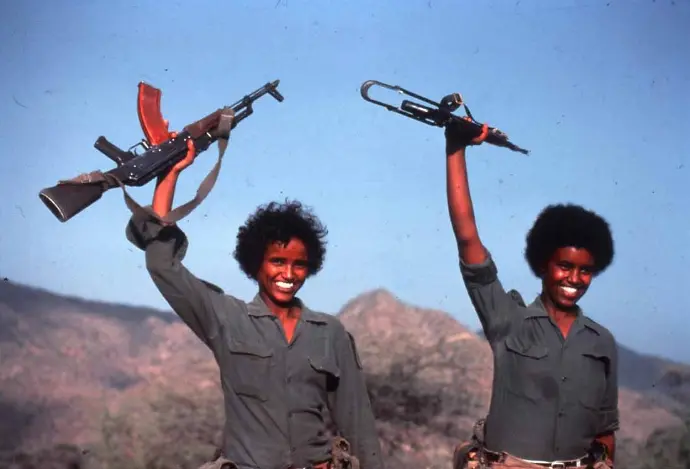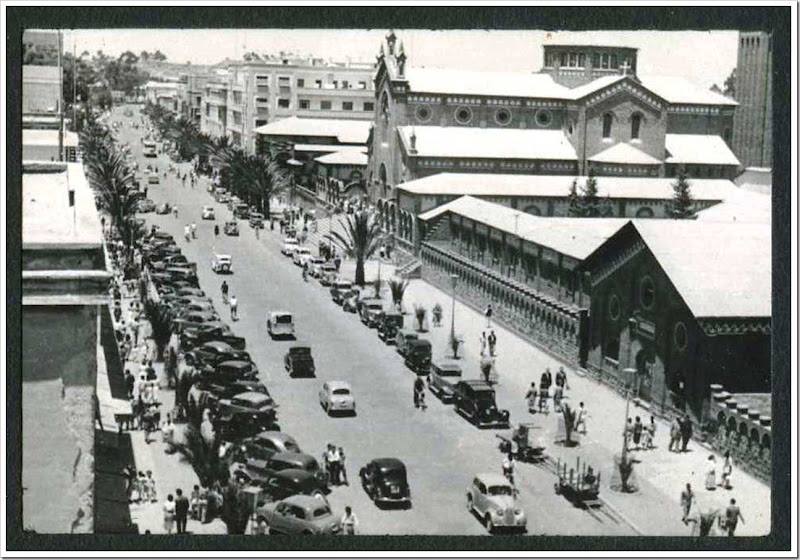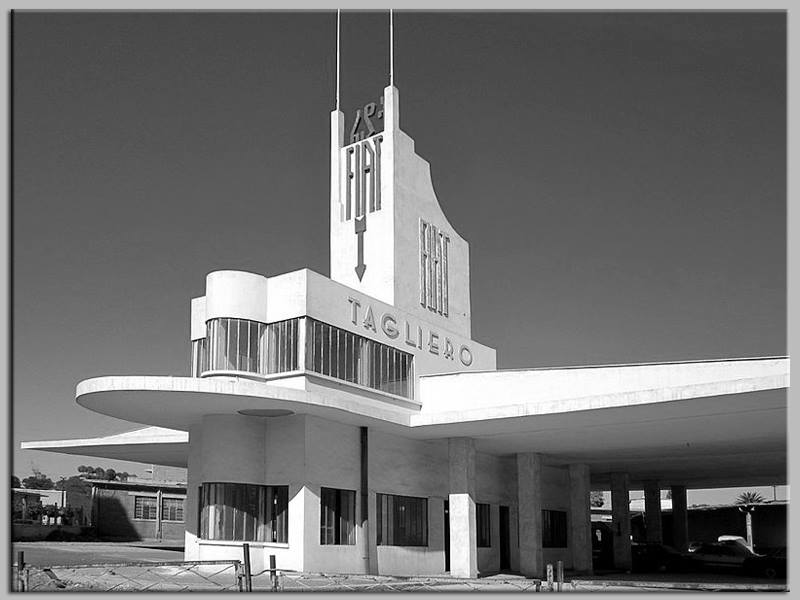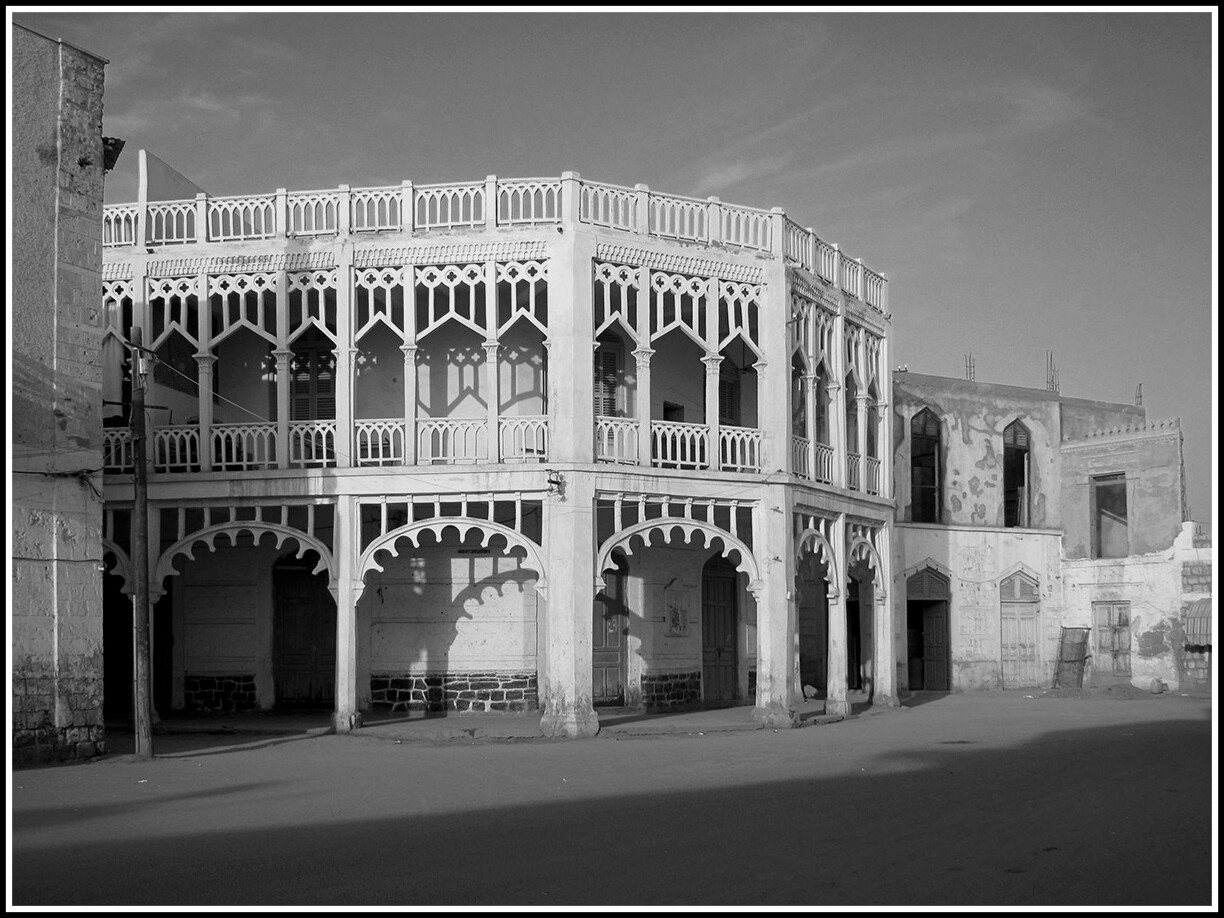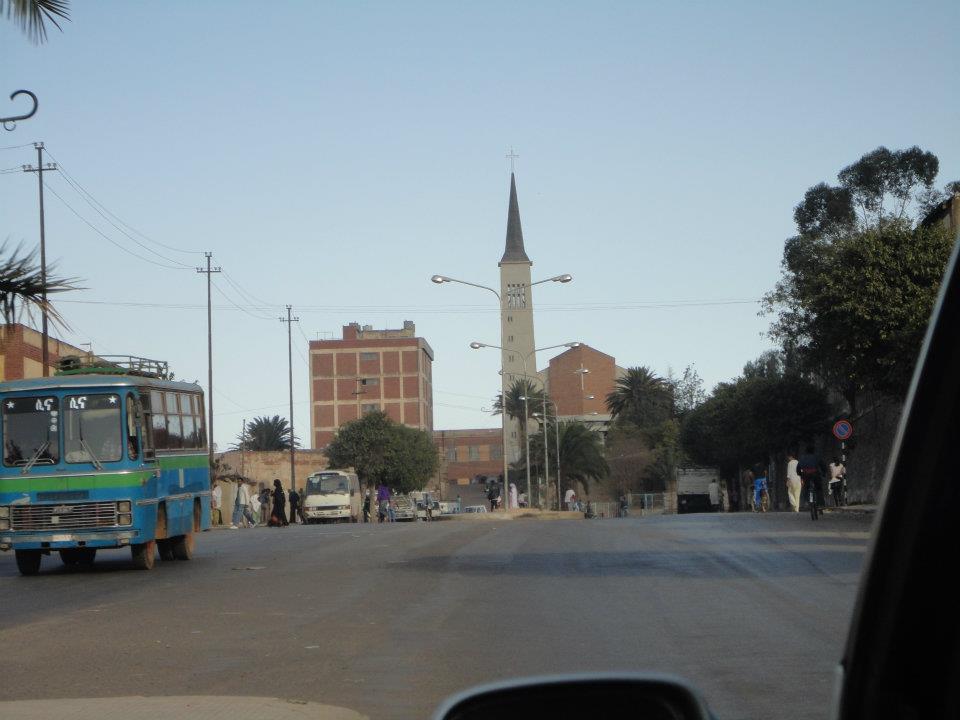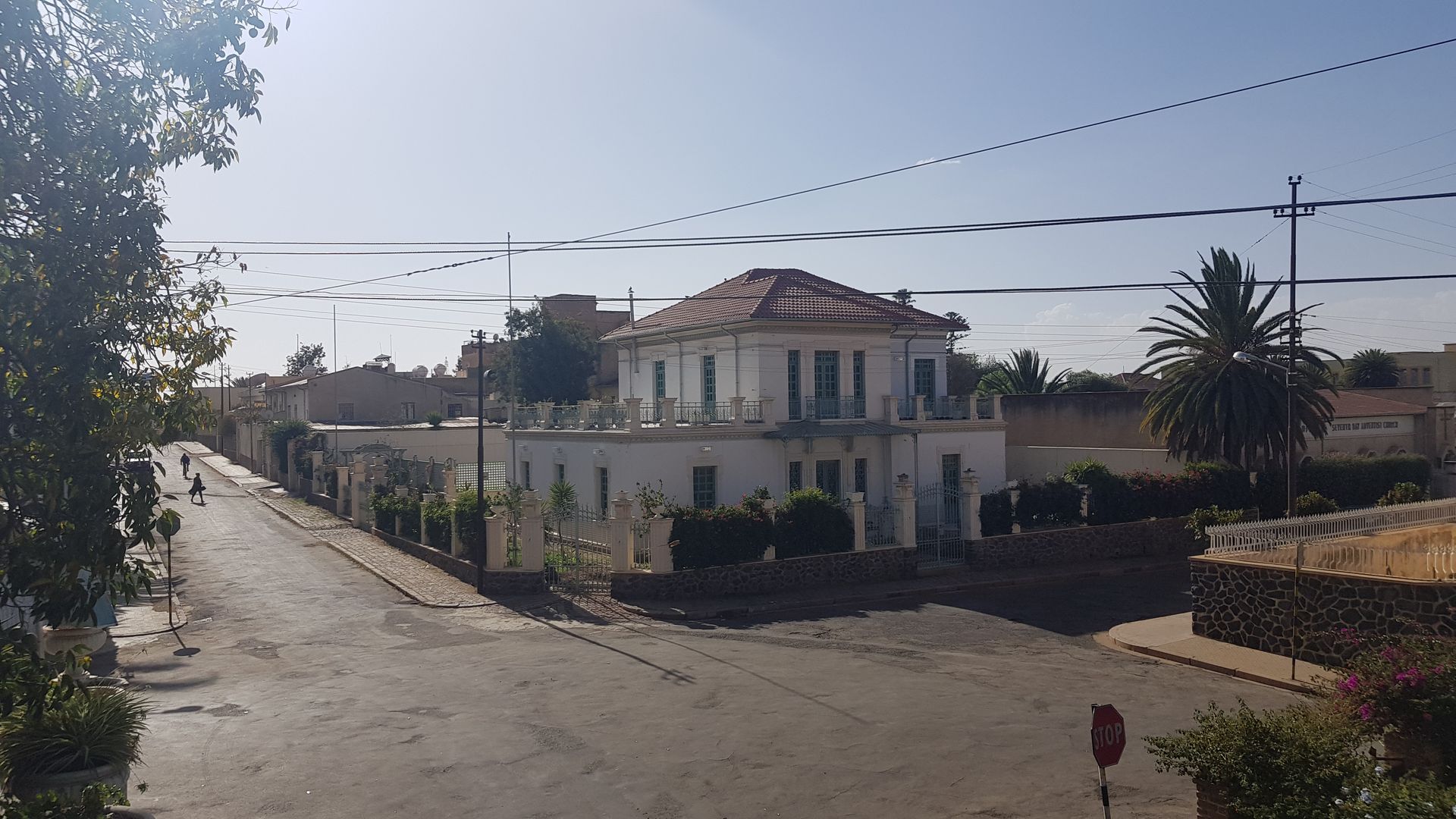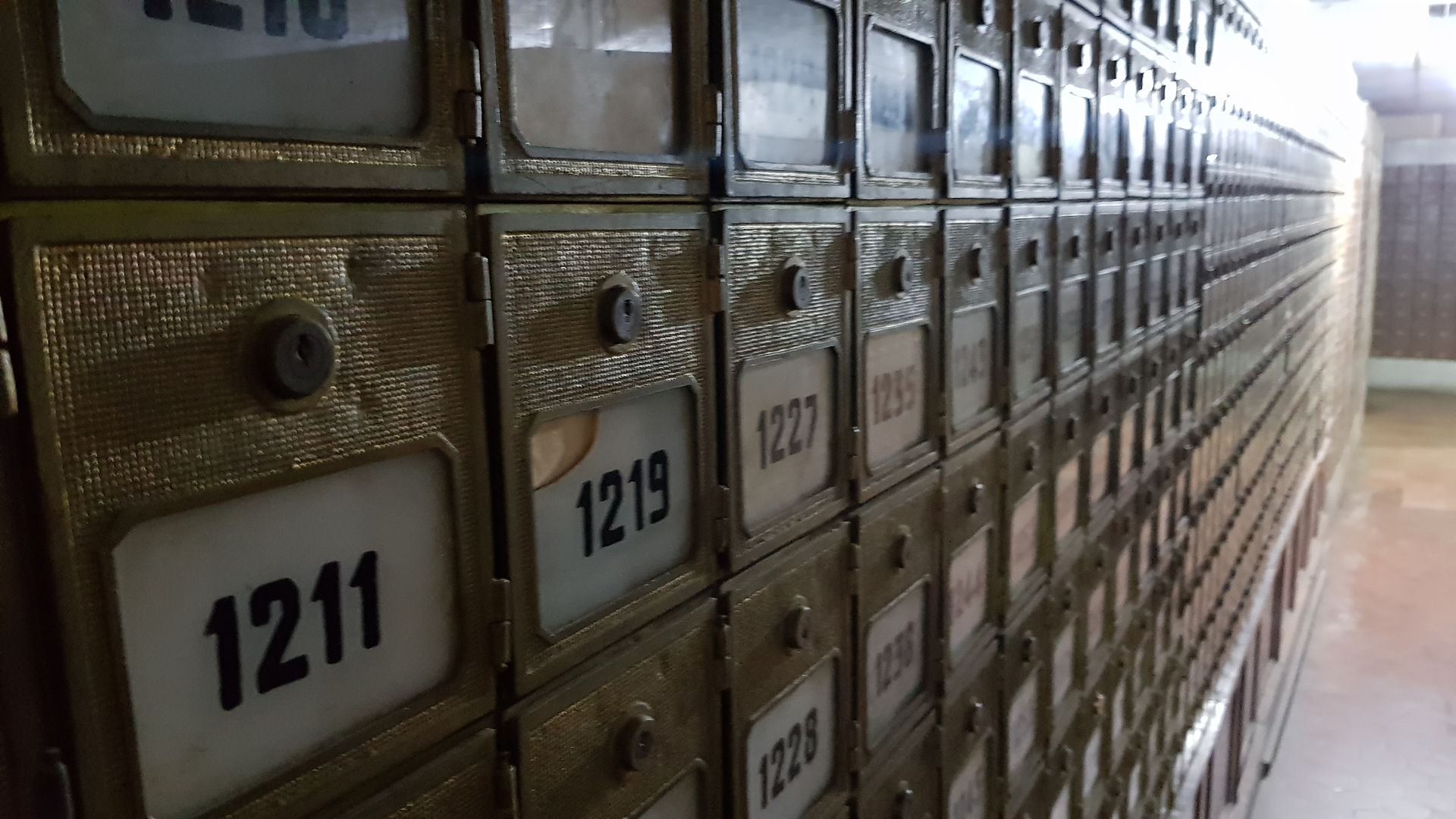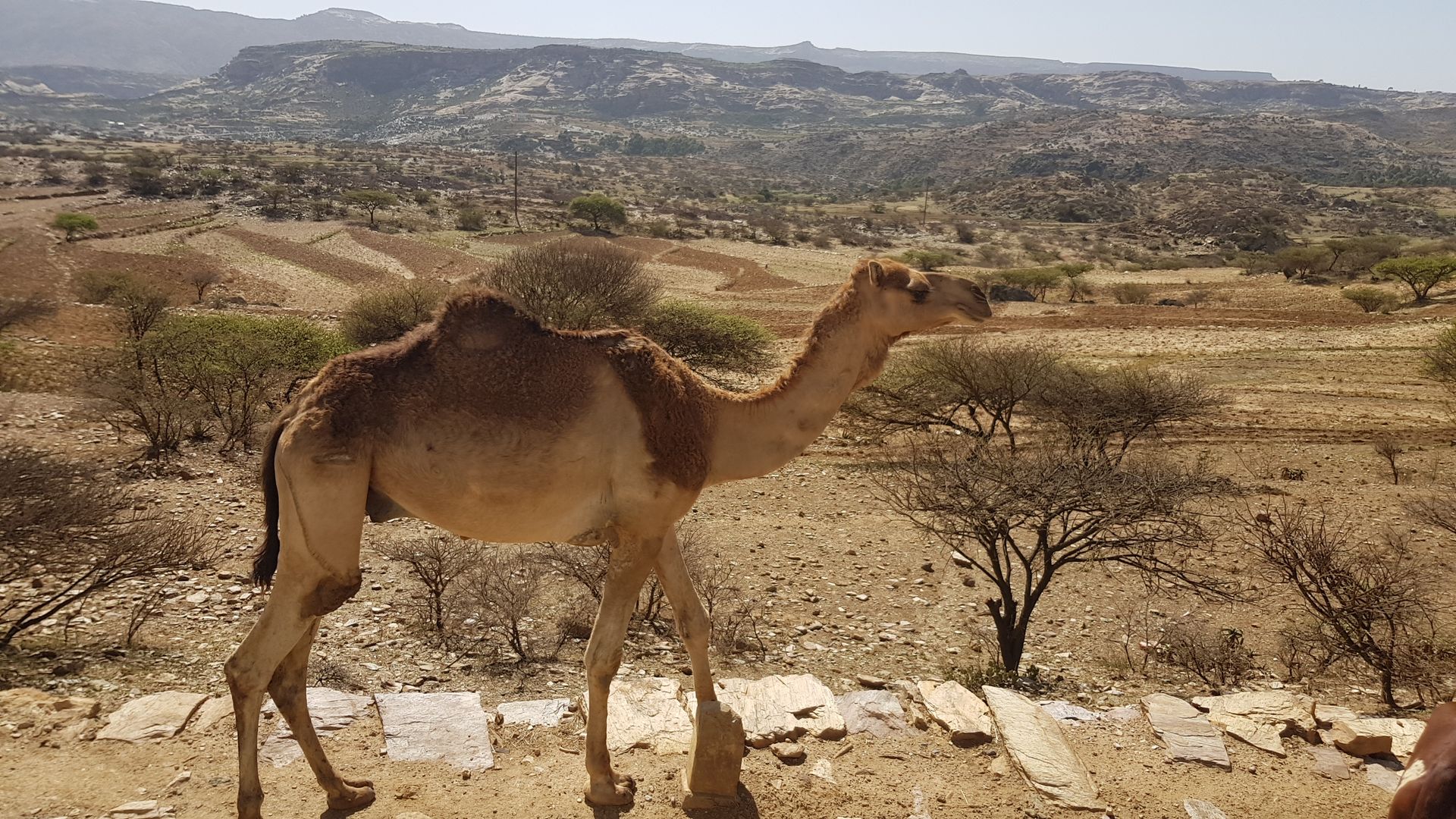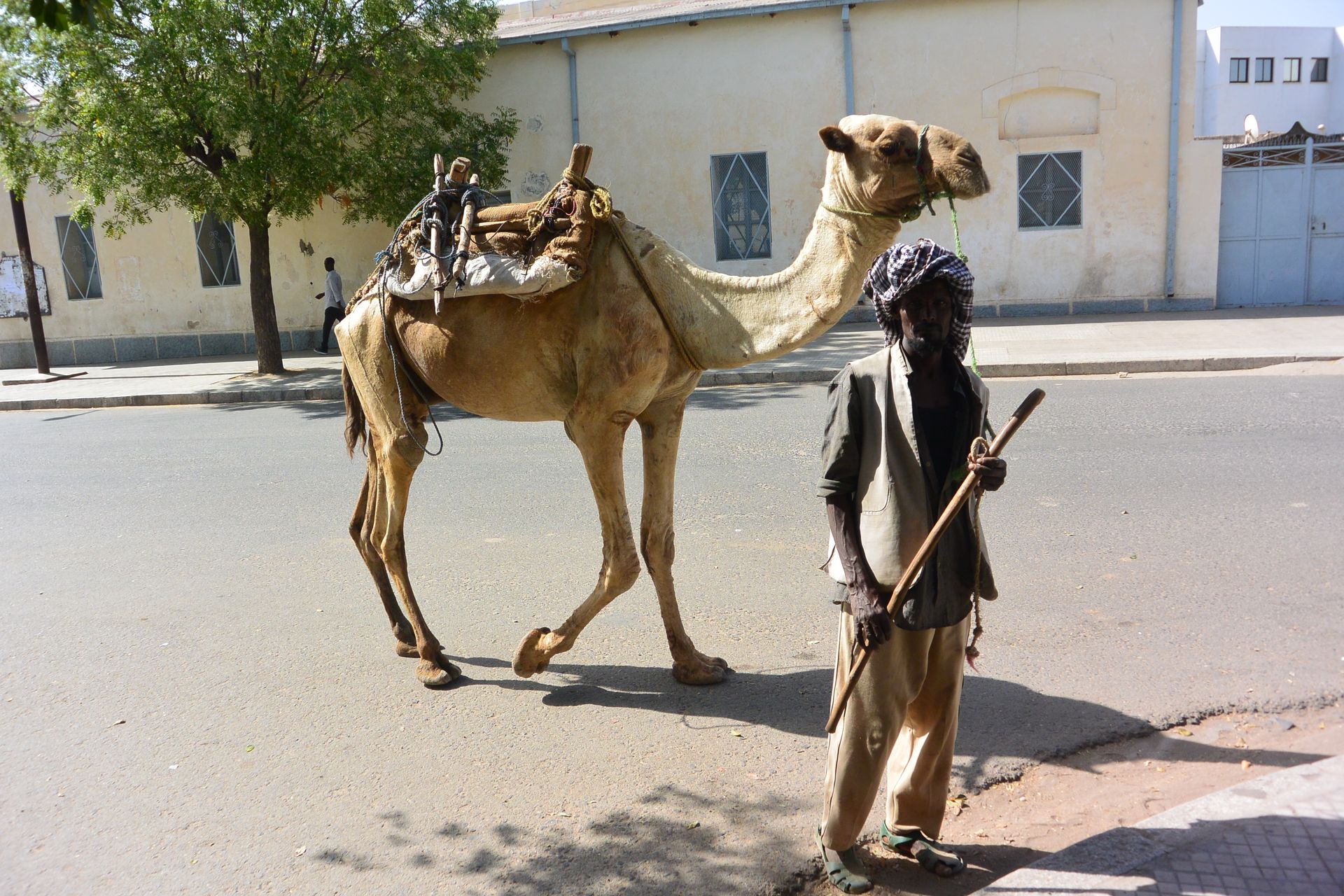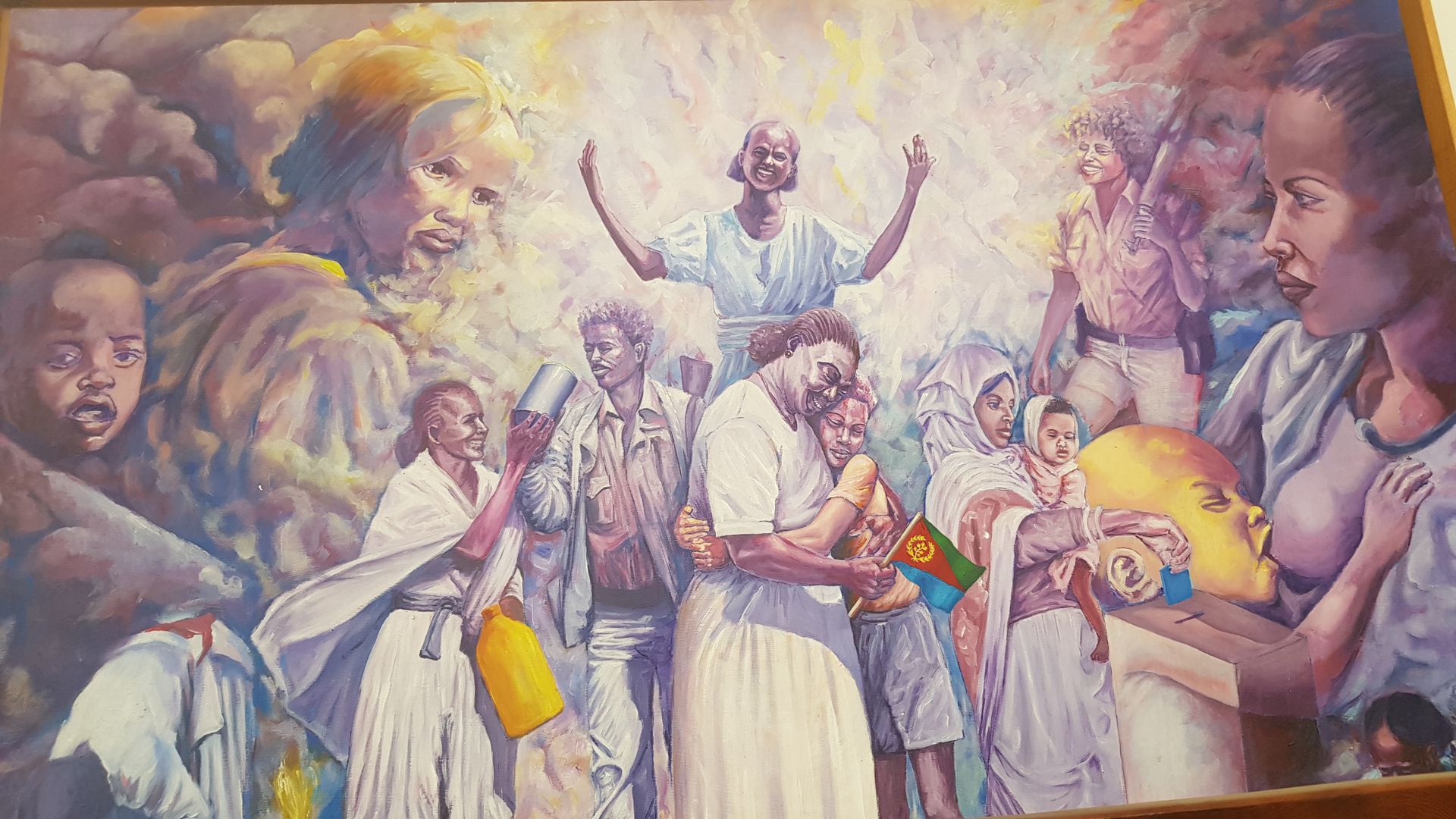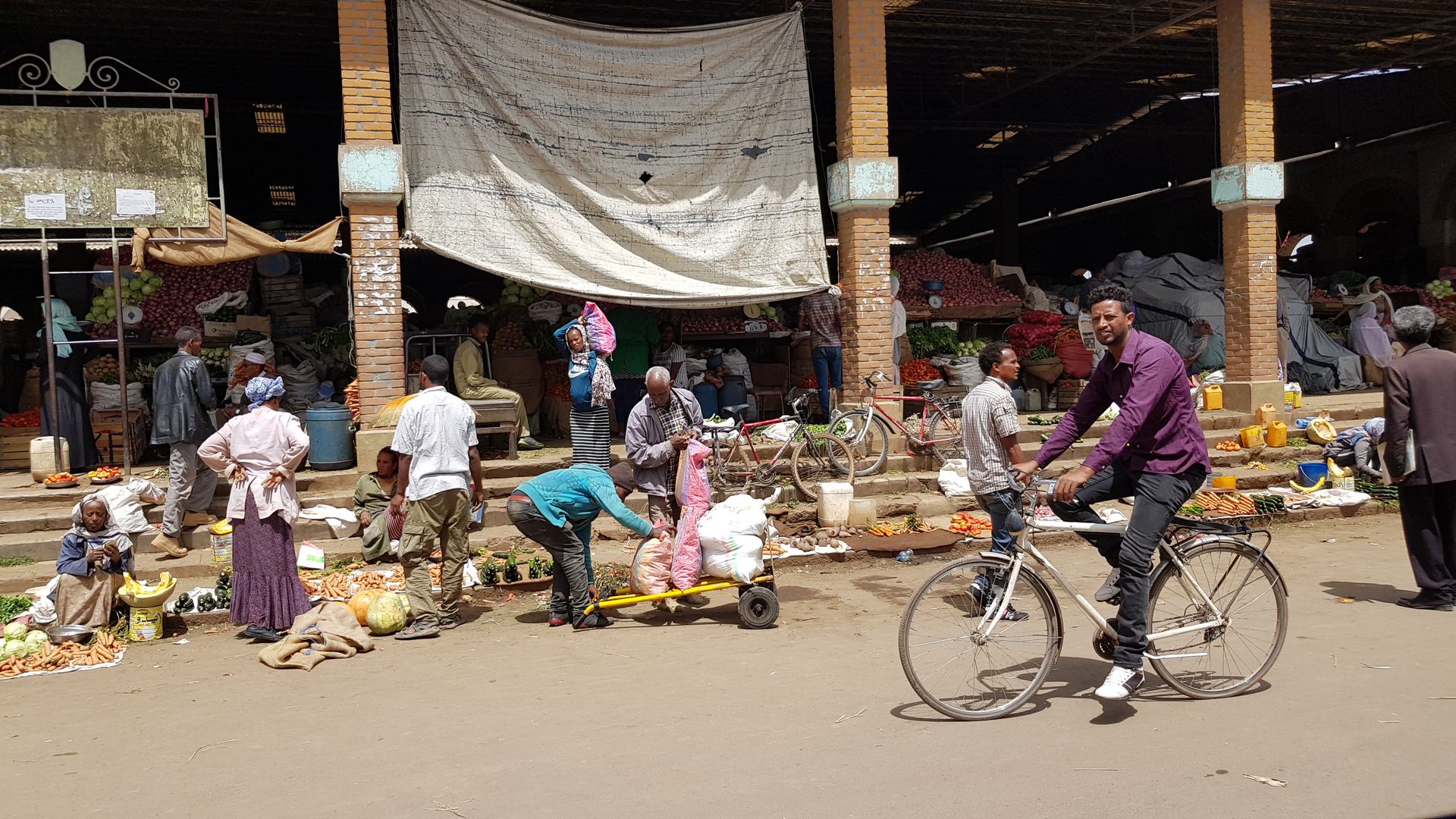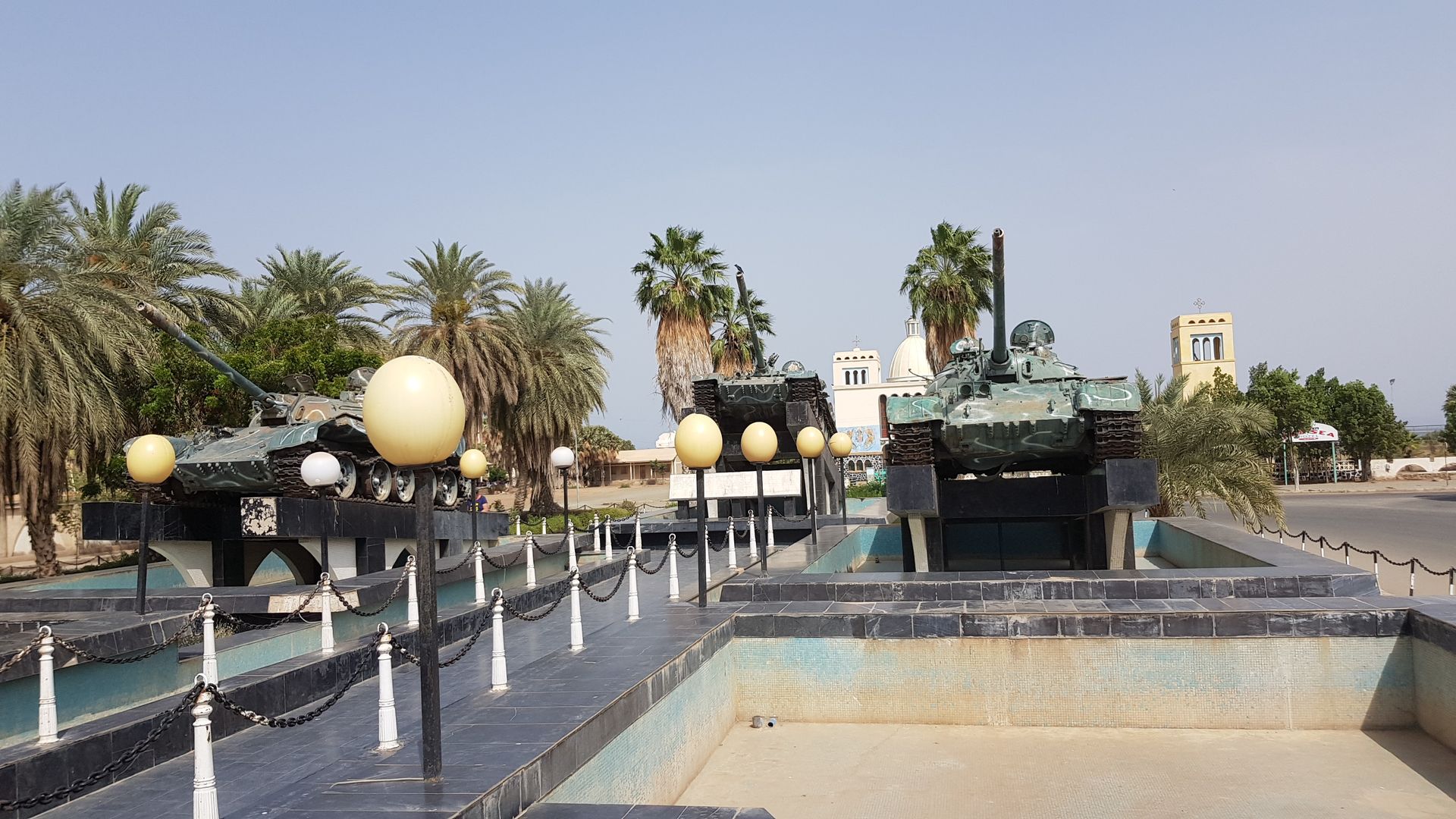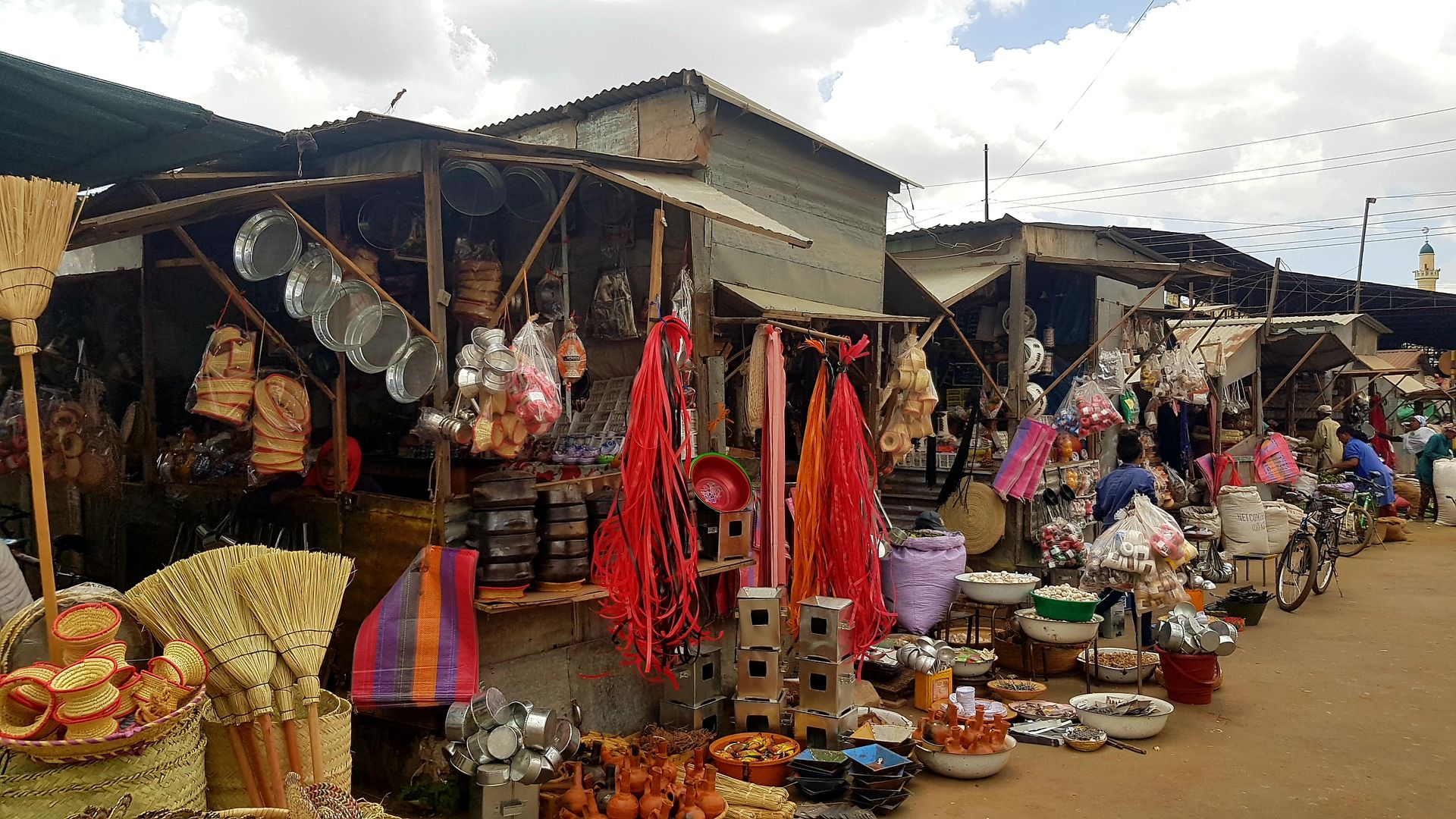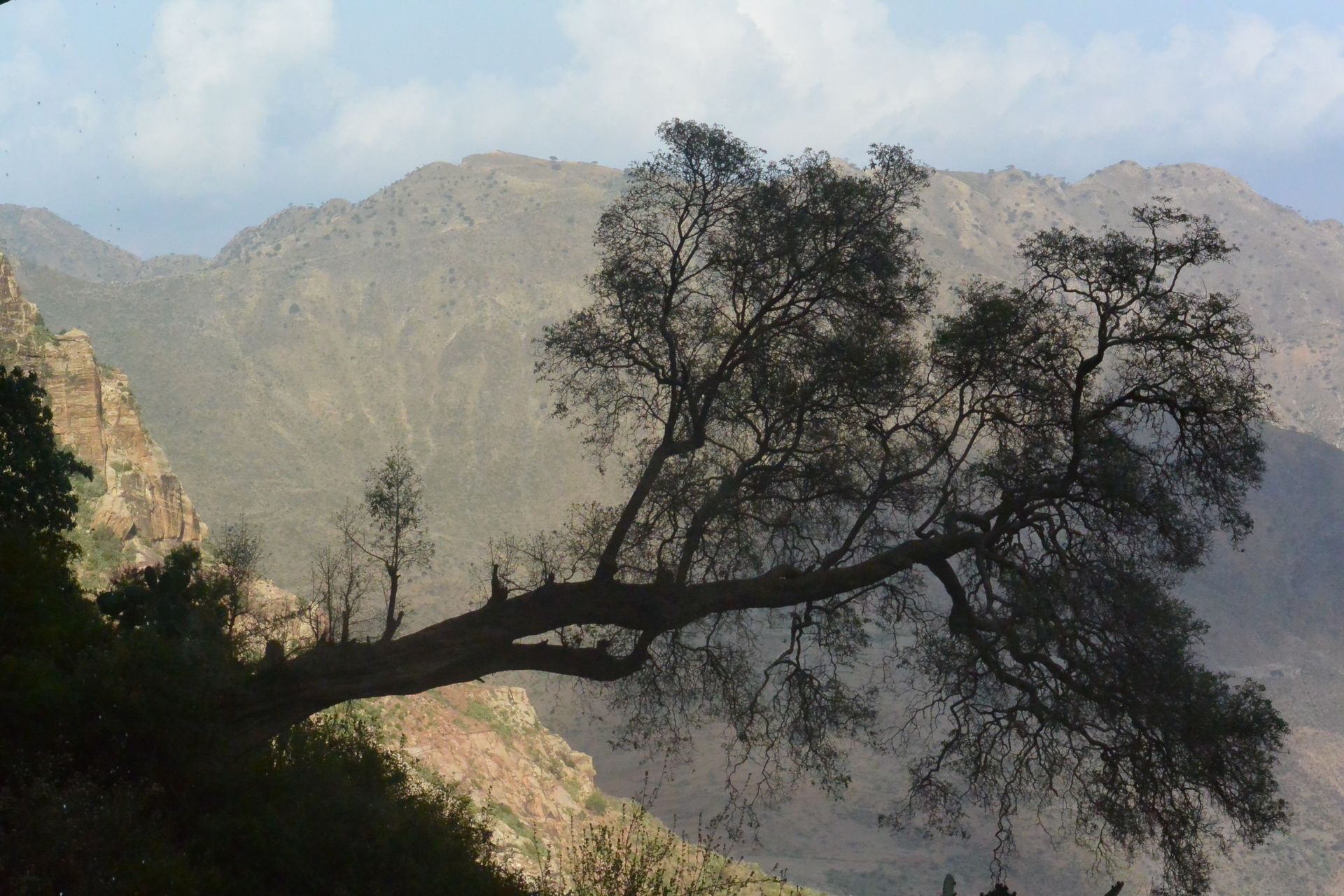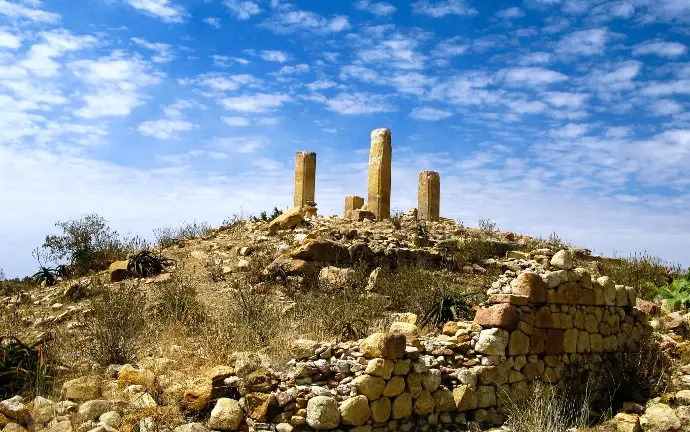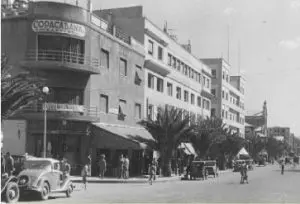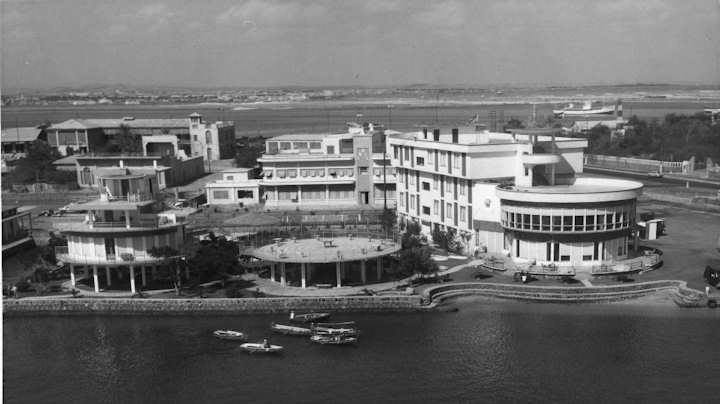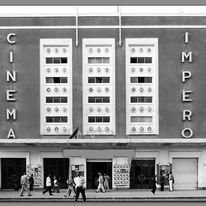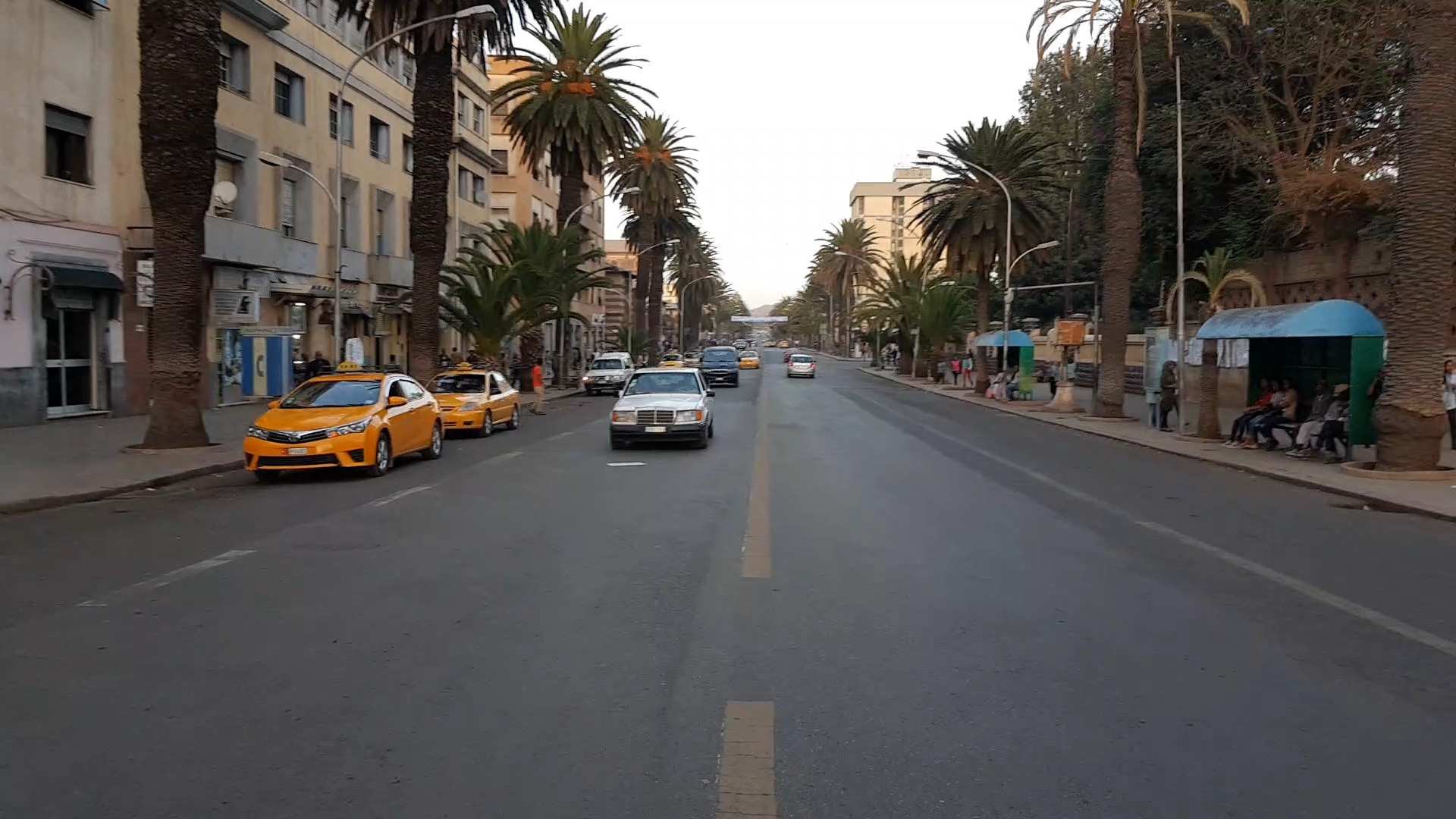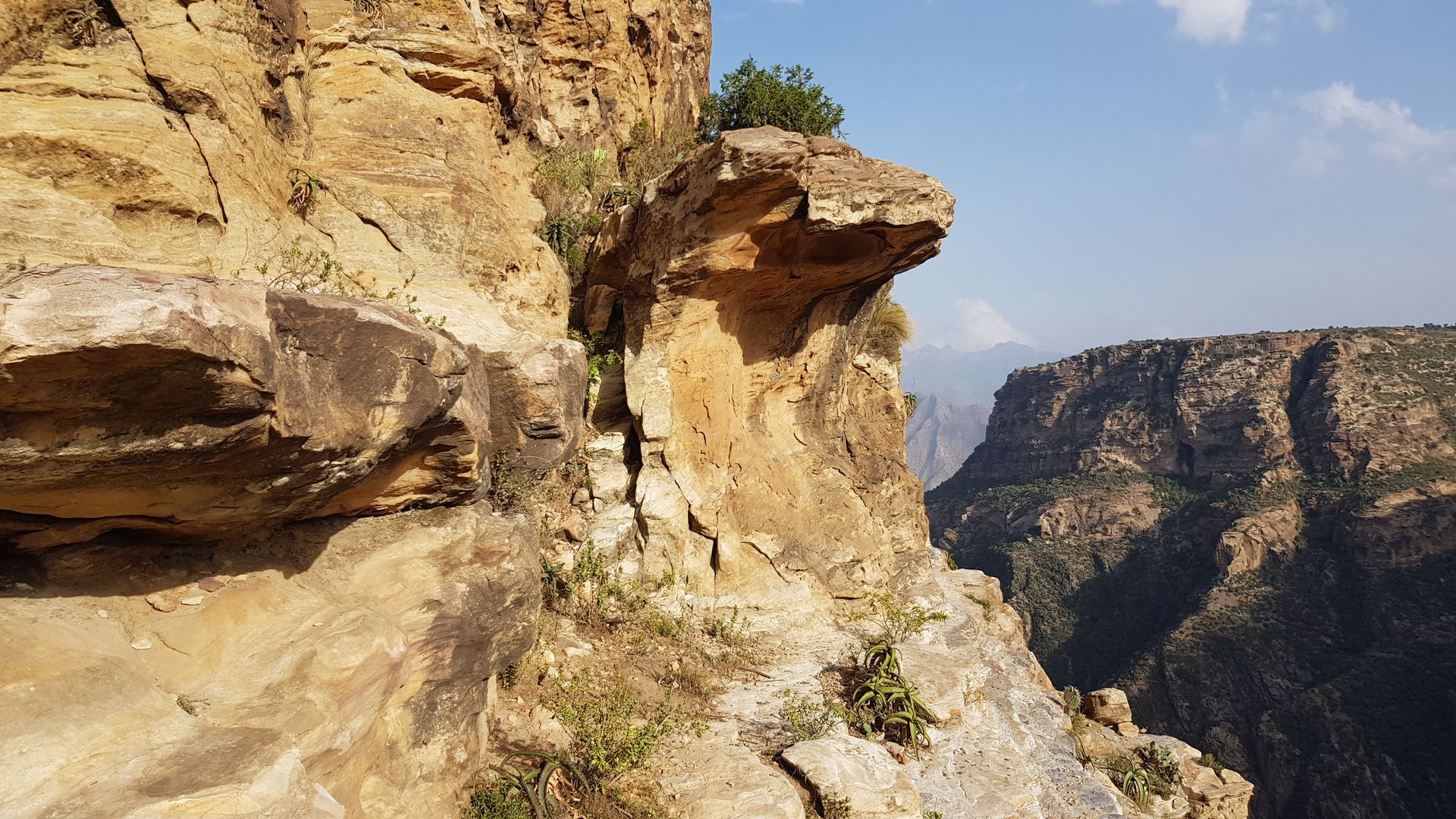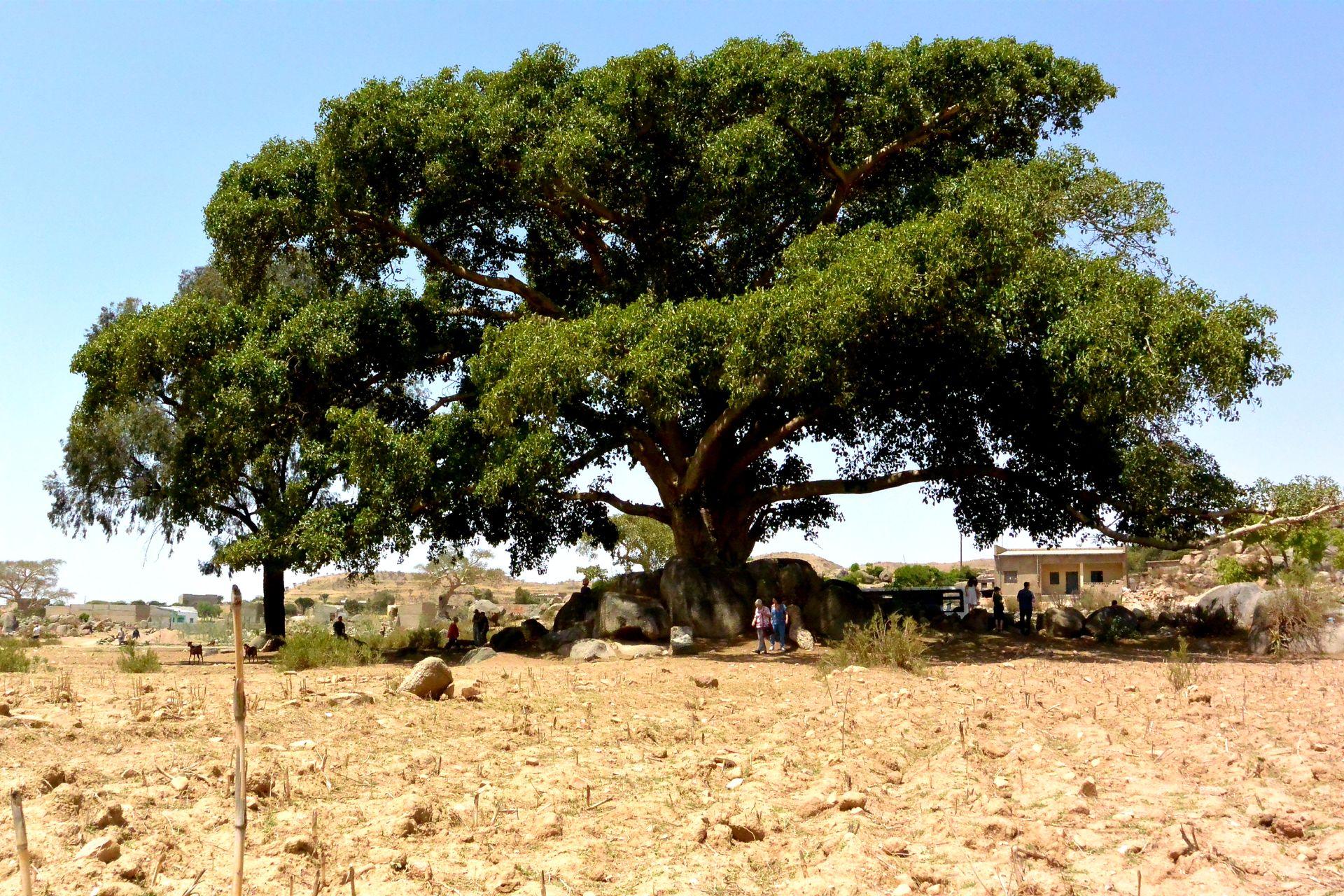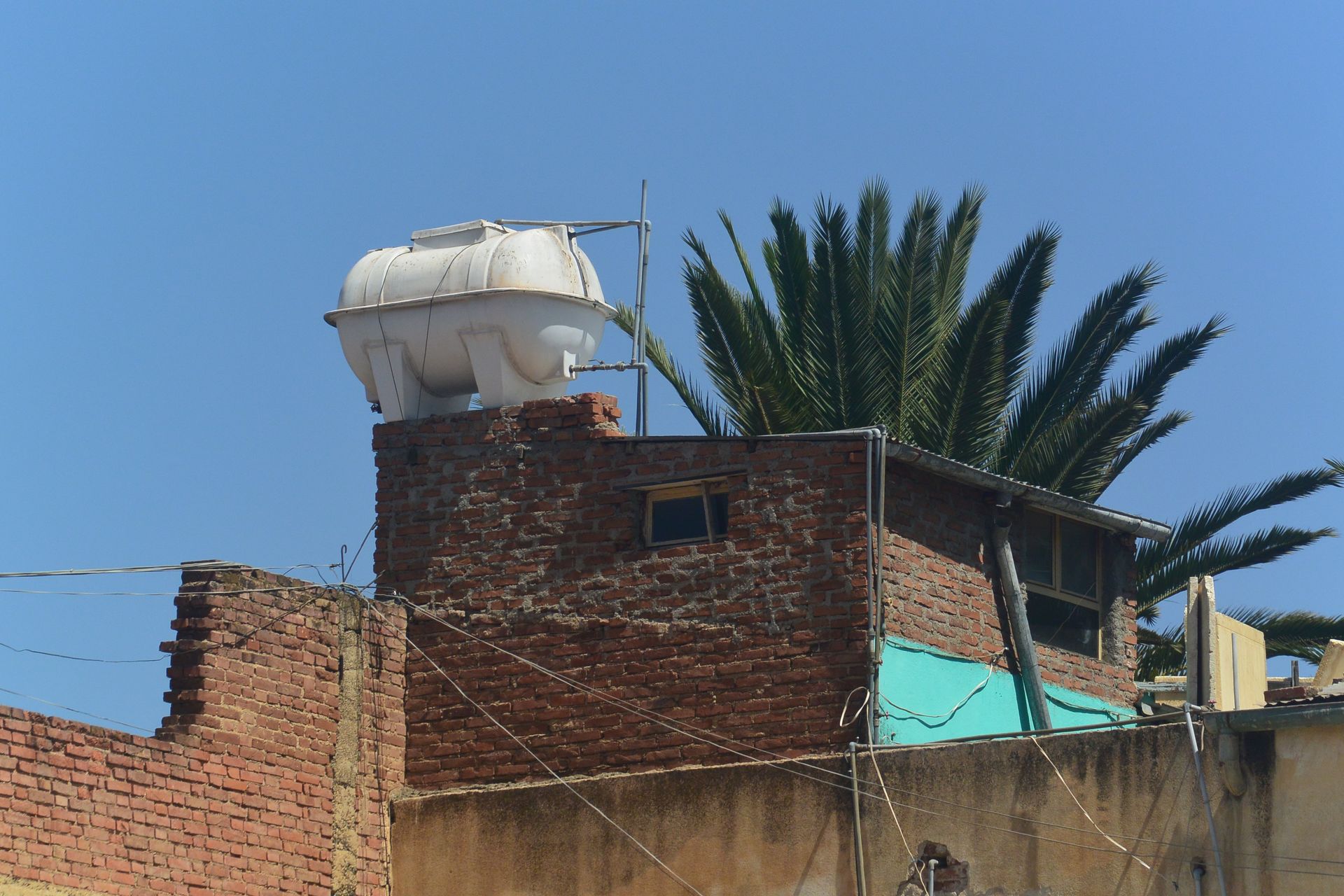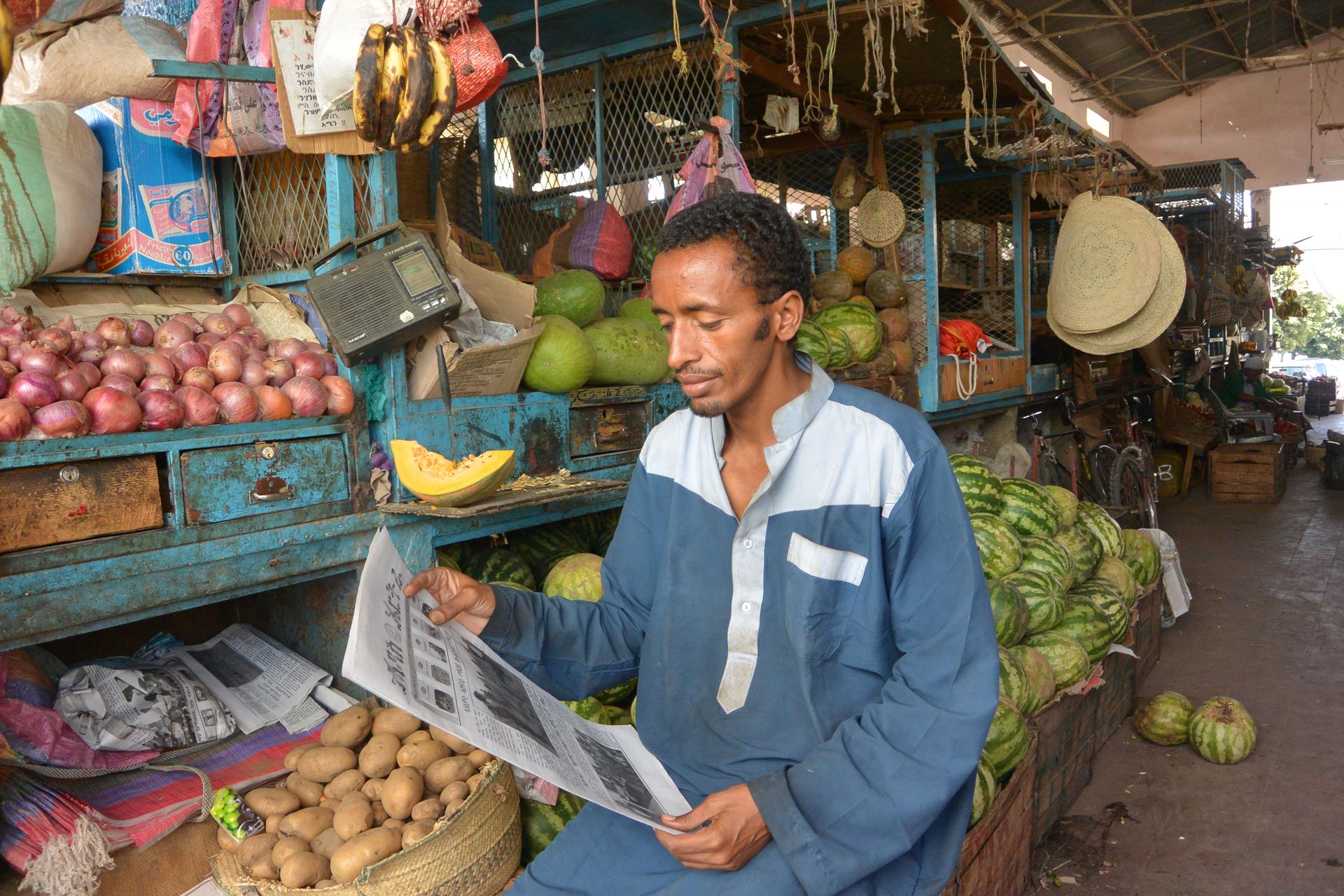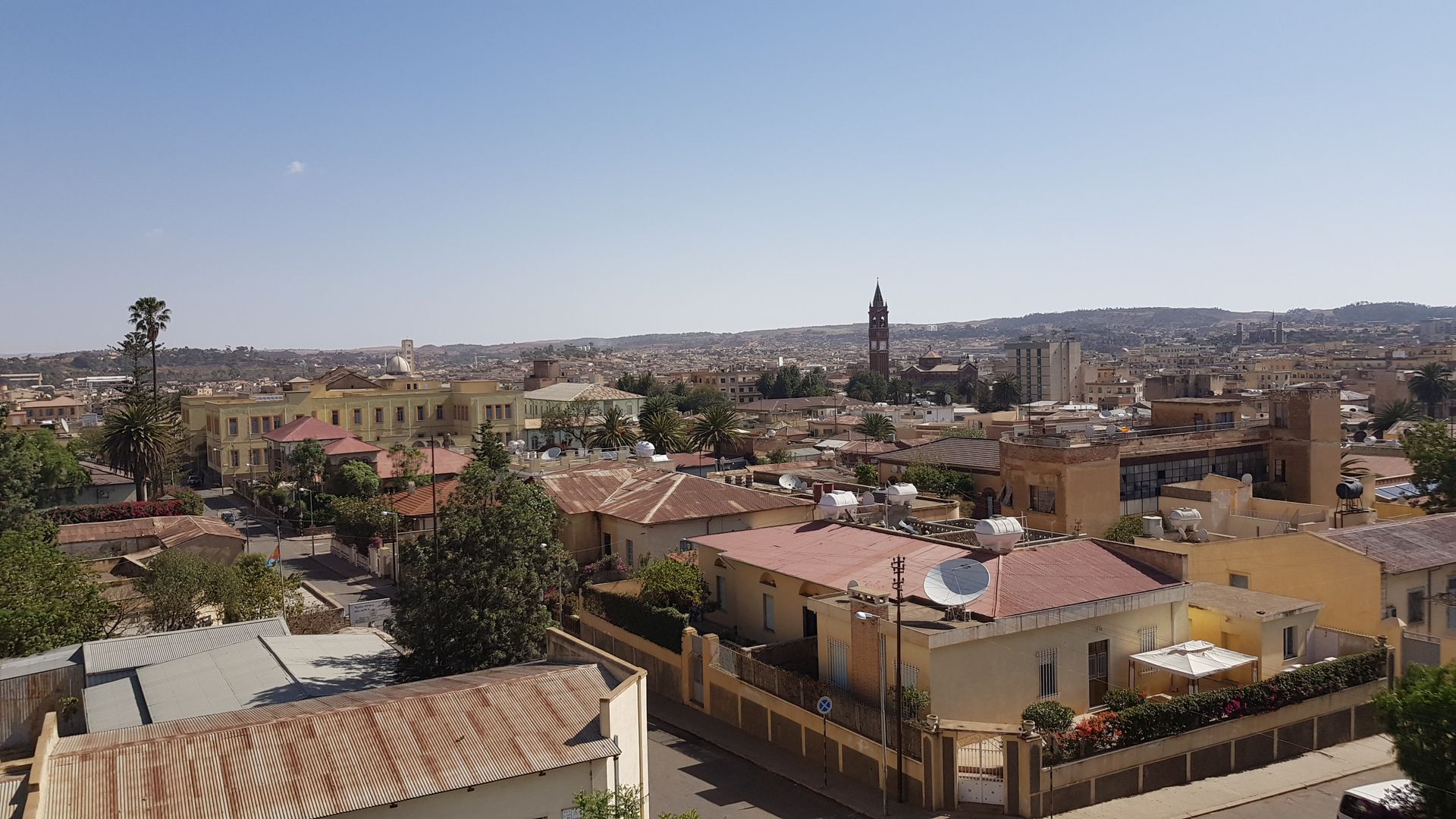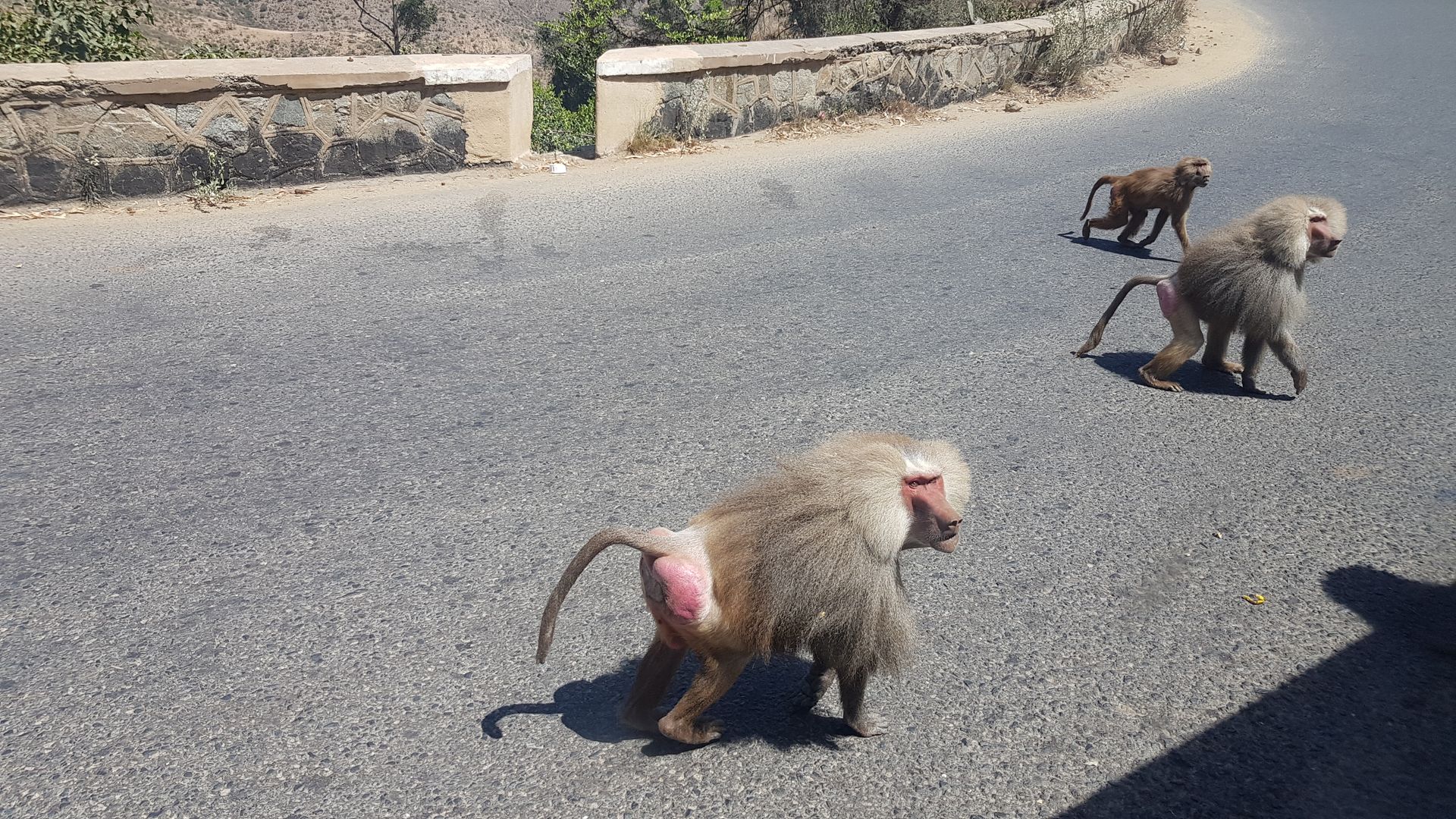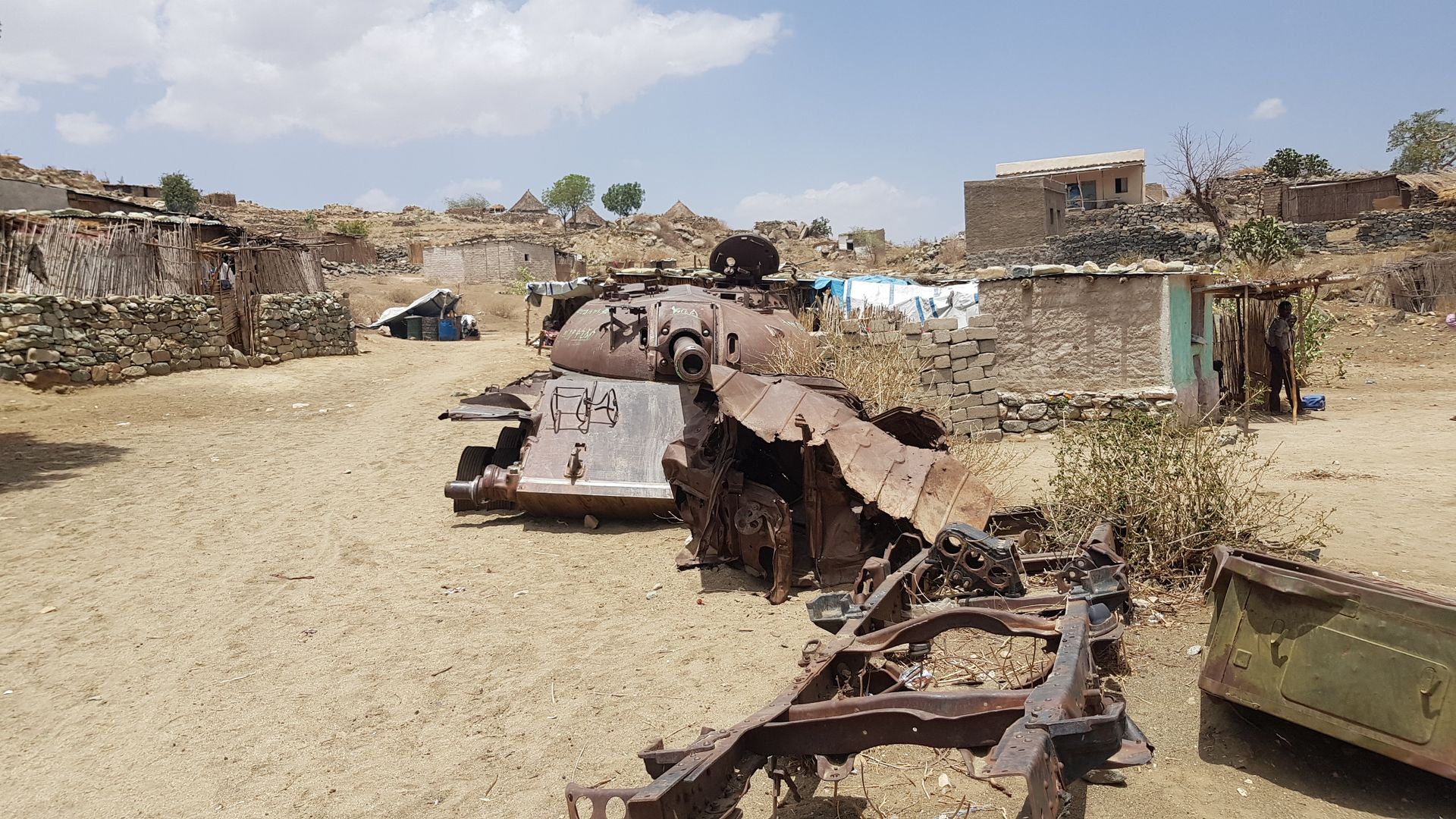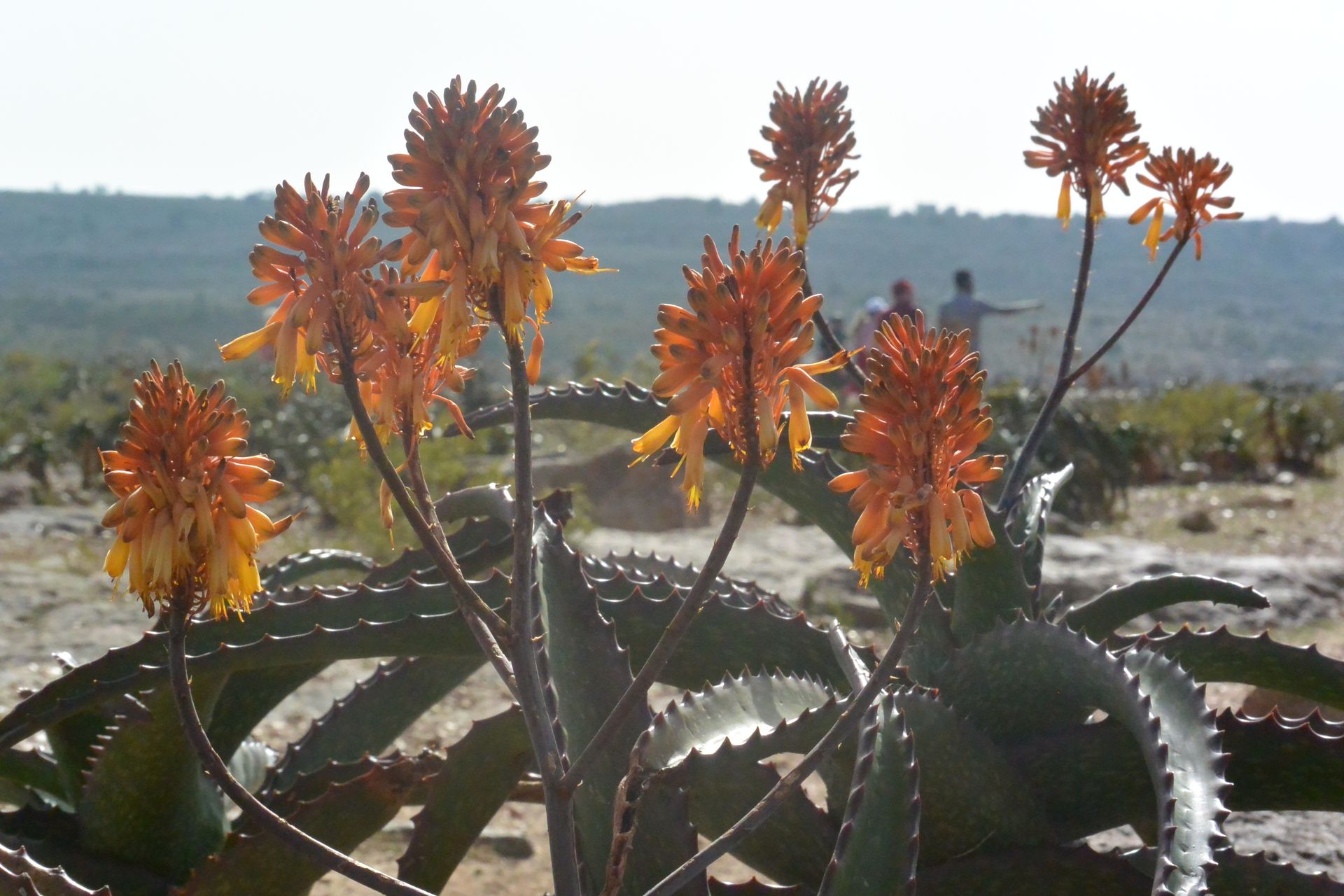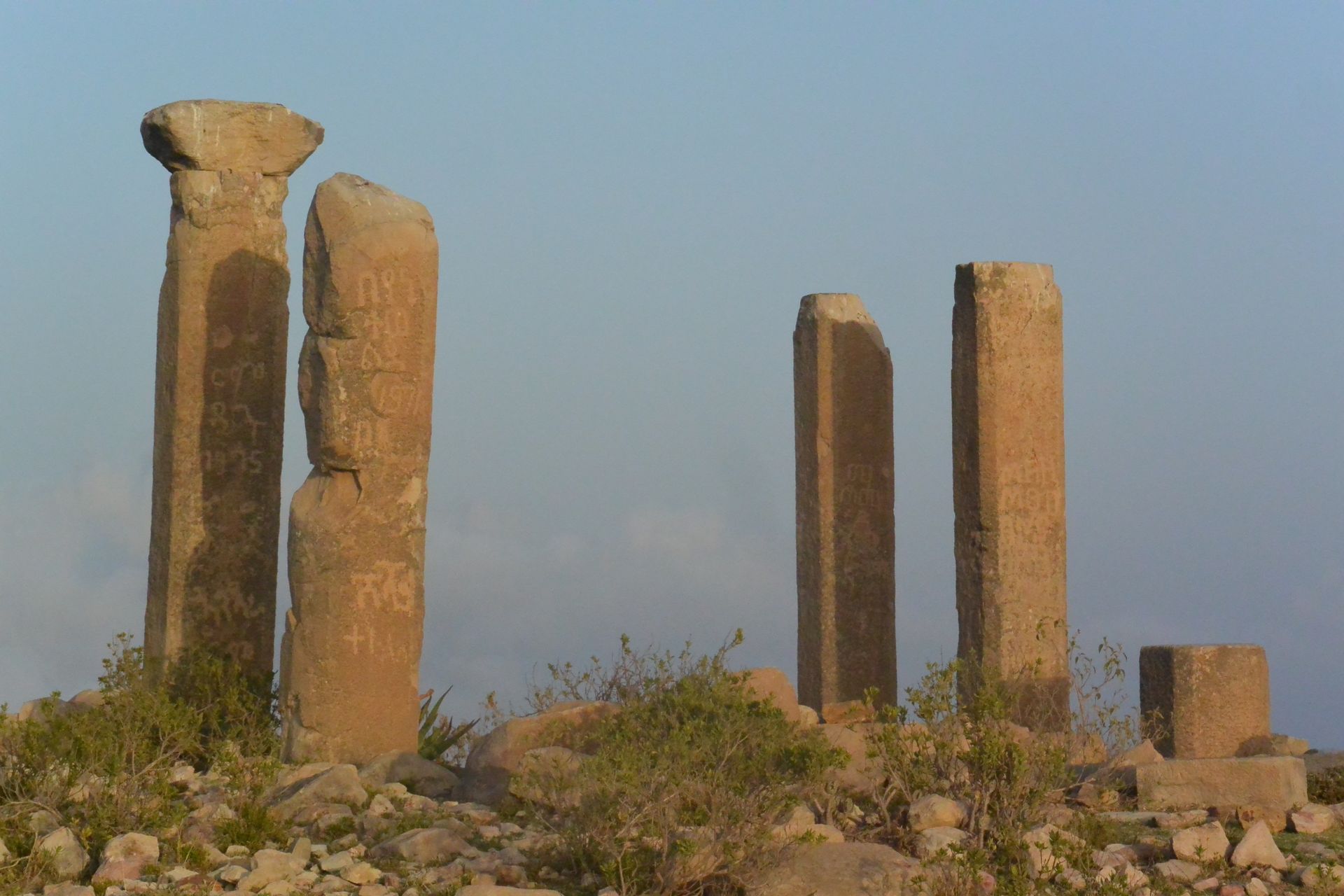The Kingdom of Adulis and Pount: ancient origins
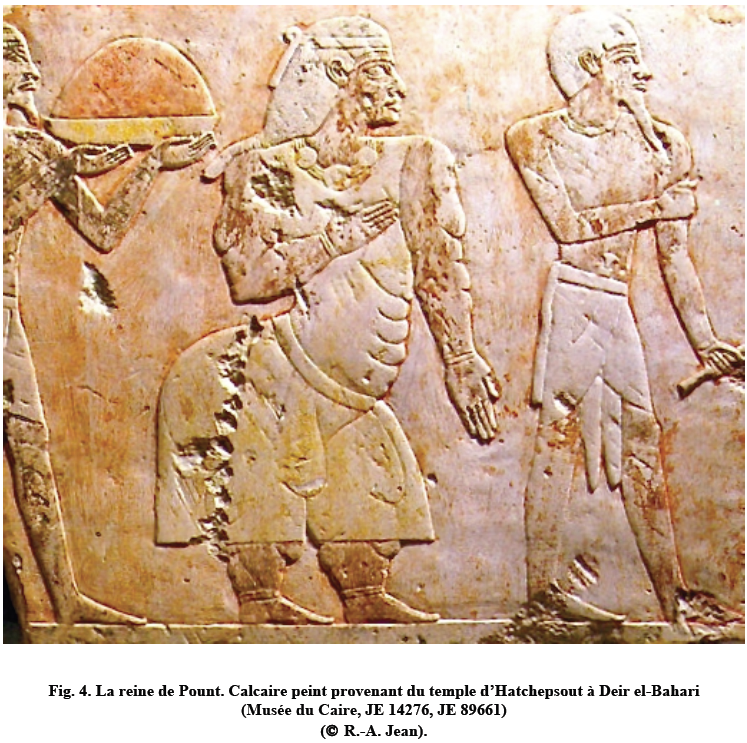
The earliest traces of civilisation in Eritrea and the surrounding region date back to the kingdom of Punt, also known as the "Land of the Gods" by the ancient Egyptians. Located between Egypt and the southern Red Sea, Punt was a trading centre for frankincense, myrrh, gold and exotic animals. The Egyptians maintained trade relations with Punt as early as the Fifth Dynasty (around 2500 BC), and the legendary expedition of Queen Hatshepsut (around 1490 BC) strengthened trade links with this mysterious kingdom.
.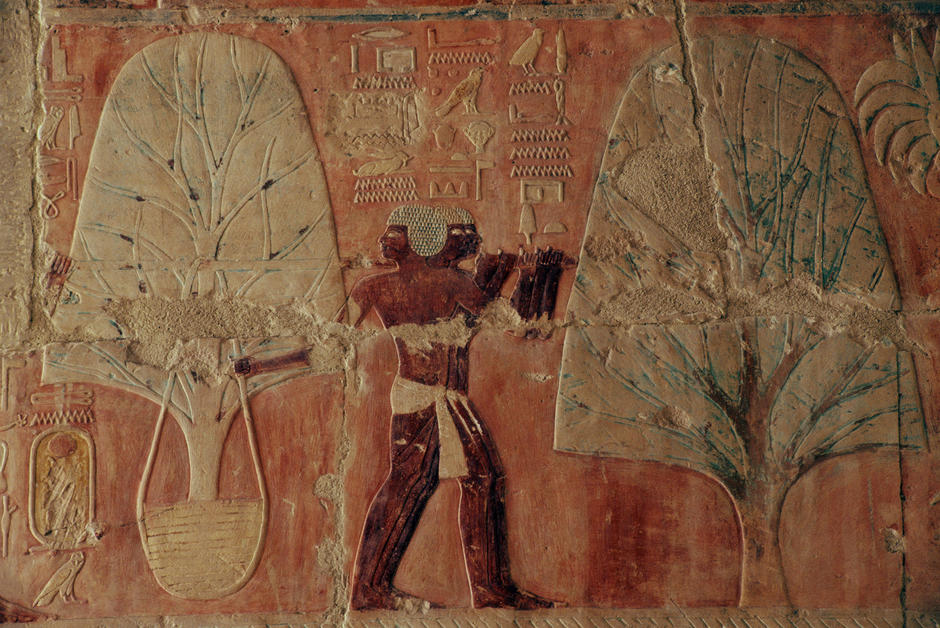
Historians still don't know exactly where the kingdom of Pount was located, but several theories suggest that Eritrea and northern Somalia may have been at its heart. Archaeological digs have revealed Egyptian artefacts and symbols in this region, testifying to the cultural and commercial links between these peoples.
The Adulis Kingdom: a regional power
Around the first century, Eritrea became an integral part of the kingdom of Aksum, a powerful Ethiopian civilisation that dominated the Red Sea and East Africa. Aksum played a key role in trade between the Roman Empire and India, particularly in the exchange of ivory, gold, spices and silks. Eritrea's geographical position along the Red Sea made the port city of Adulis a nerve centre for regional trade
.
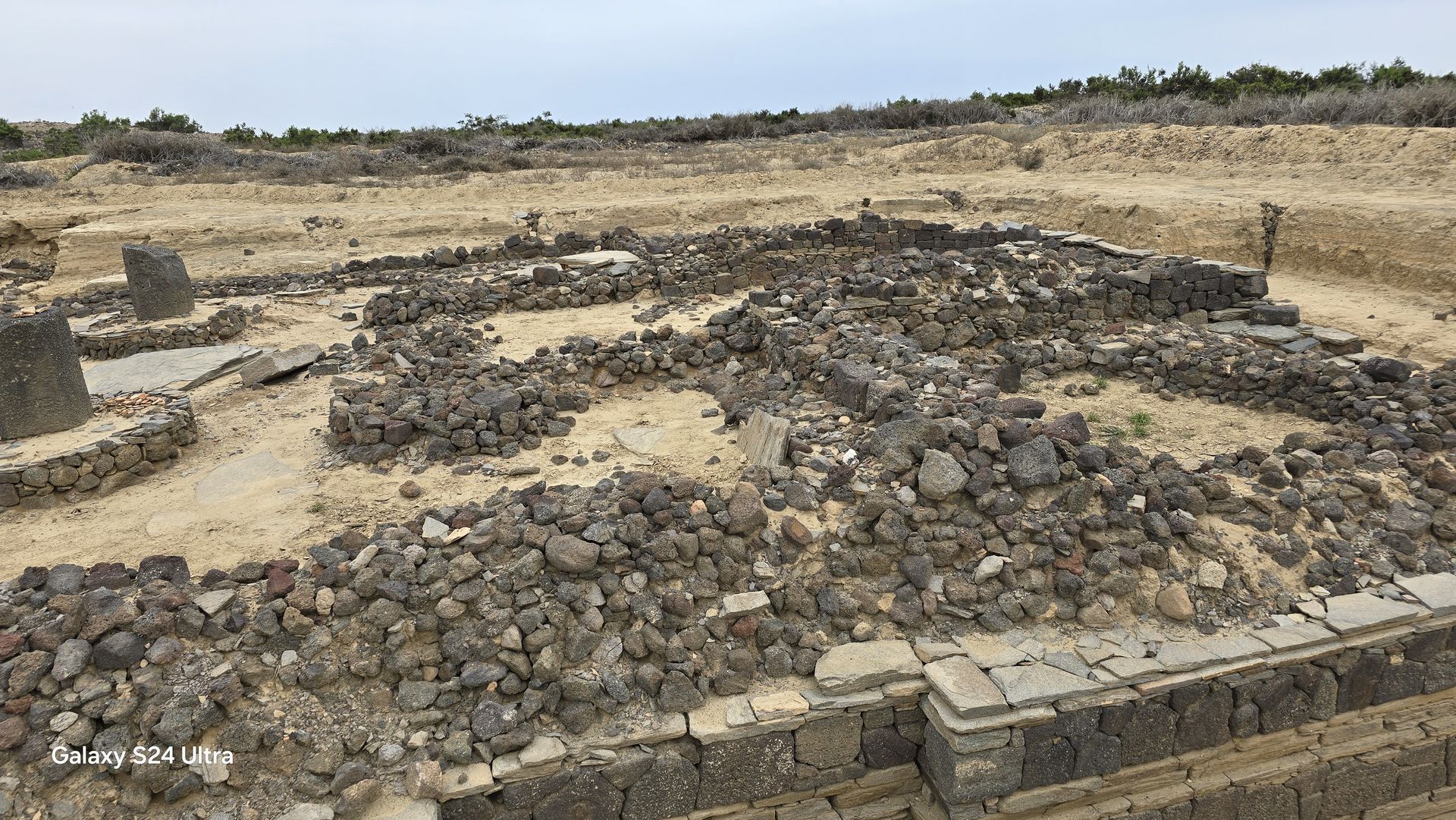
Christianity was also introduced to the region during this period. Around the 4th century, King Ezana of Aksum adopted Christianity, and it became a central part of local culture. This marked a major transition for Eritrea, which became one of the first regions in Africa to embrace Christianity, although Islam also found its place later, contributing to the country's religious diversity.
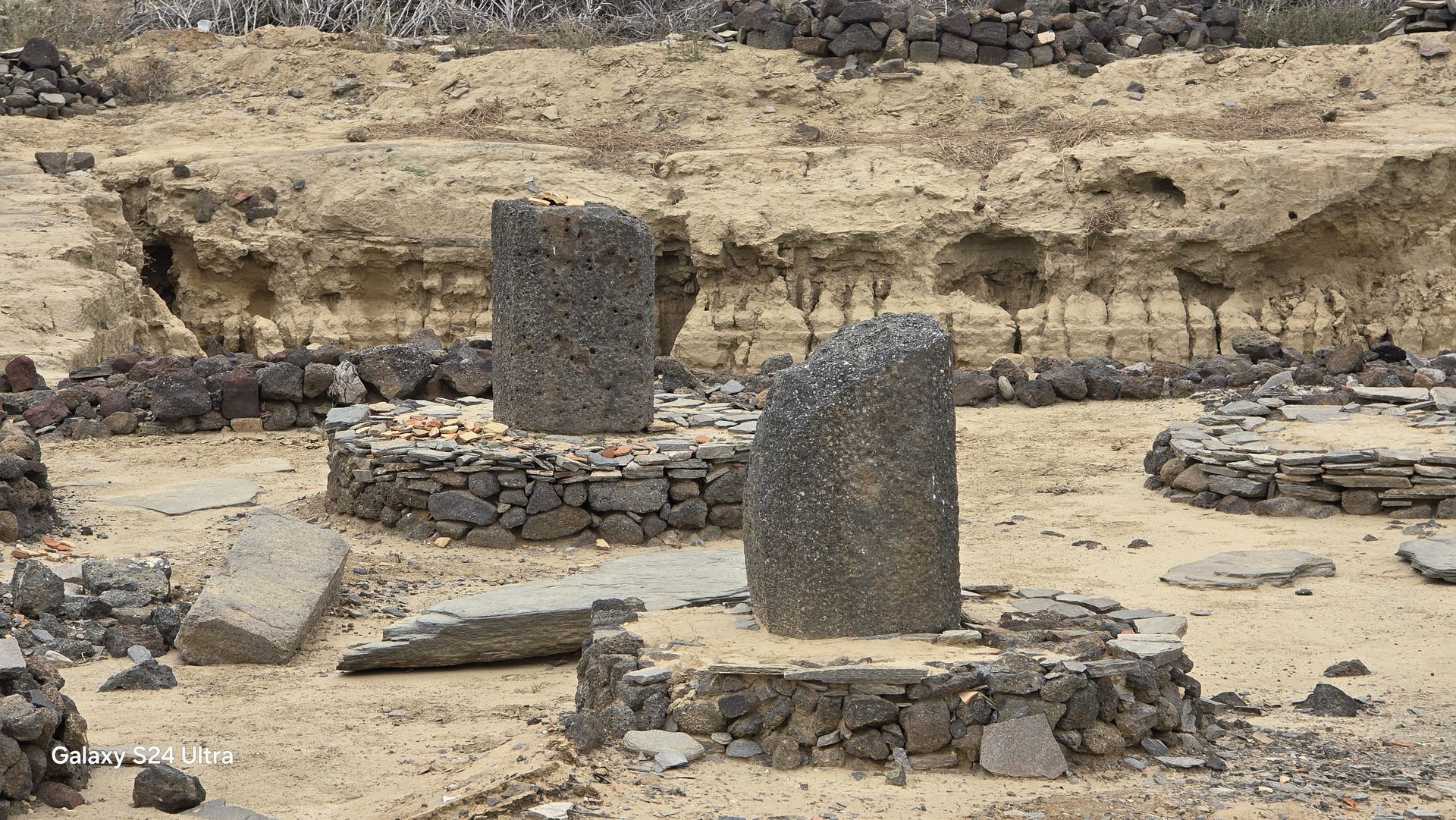
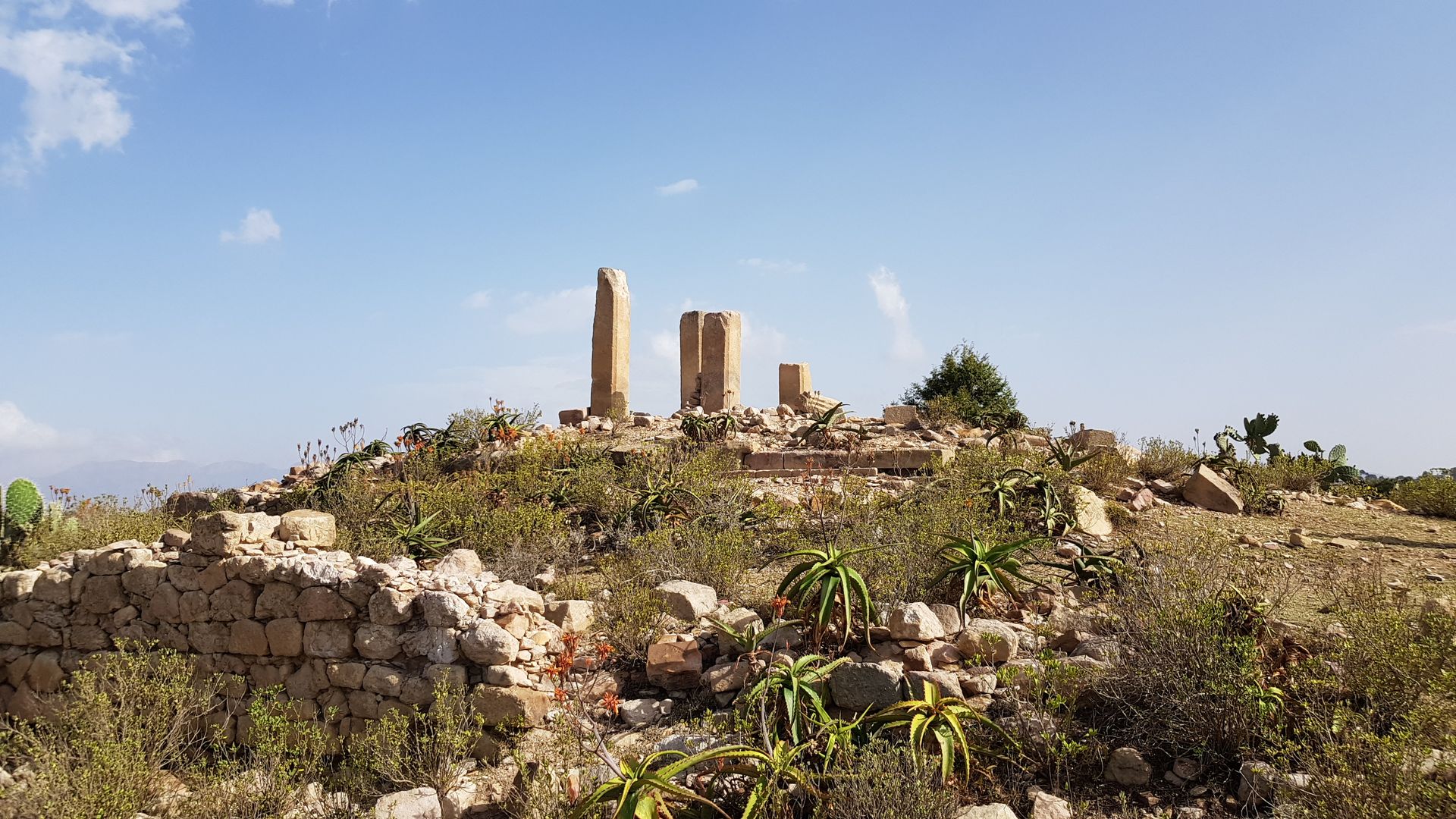
Eritrea under Ottoman, Egyptian and Italian rule
In the 16th and 17th centuries, the Ottoman Empire, eager to control the Red Sea trade routes, established bases along the Eritrean coast. However, their control was limited to the ports, leaving the inland regions relatively independent. At the end of the 19th century, the colonial ambitions of the European powers led to Eritrea becoming an issue for Italy.
In 1889, Ethiopia signed the Treaty of Wuchale with Italy,
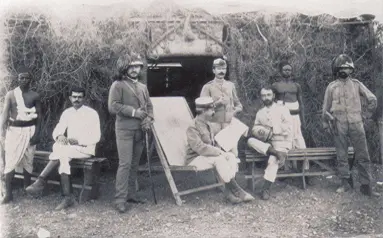
who interpreted the treaty as an agreement to make Eritrea an Italian colony. Italy strengthened its hold and founded Asmara as its colonial capital. Under Italian rule, Eritrea underwent modernisation with the construction of roads, railways and infrastructure, but this period was also marked by economic exploitation and repression.
The fight for independence
After the Second World War, Italy lost control of Eritrea and the region was placed under British administration. In 1952,
the UN decides to federate Eritrea with Ethiopia, but this union is perceived as a disguised annexation by many Eritreans. In 1962, the Ethiopian emperor Haile Selassie abolished Eritrea's federal status, transforming it into an Ethiopian province, which marked the start of the war for Eritrean independence.
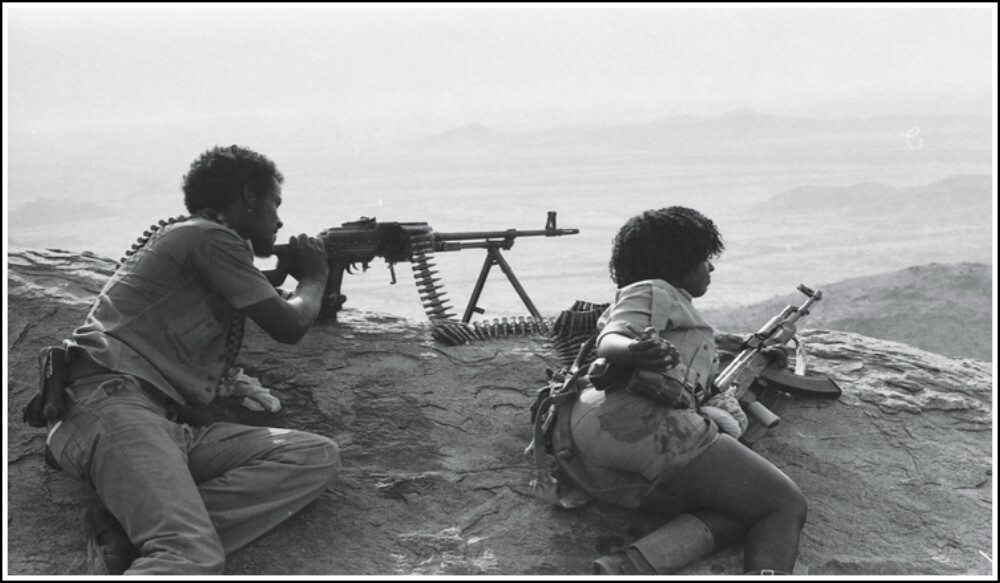
This war, which lasted thirty years (1961-1991), was one of the longest liberation struggles in Africa. It was waged mainly by the Eritrean Liberation Front (ELF) and, later, by the Eritrean People's Liberation Front (EPLF), led by Issayas Afewerki. In 1991, the EPLF succeeded in liberating Eritrea, and in 1993 a UN-supervised referendum confirmed the country's independence.
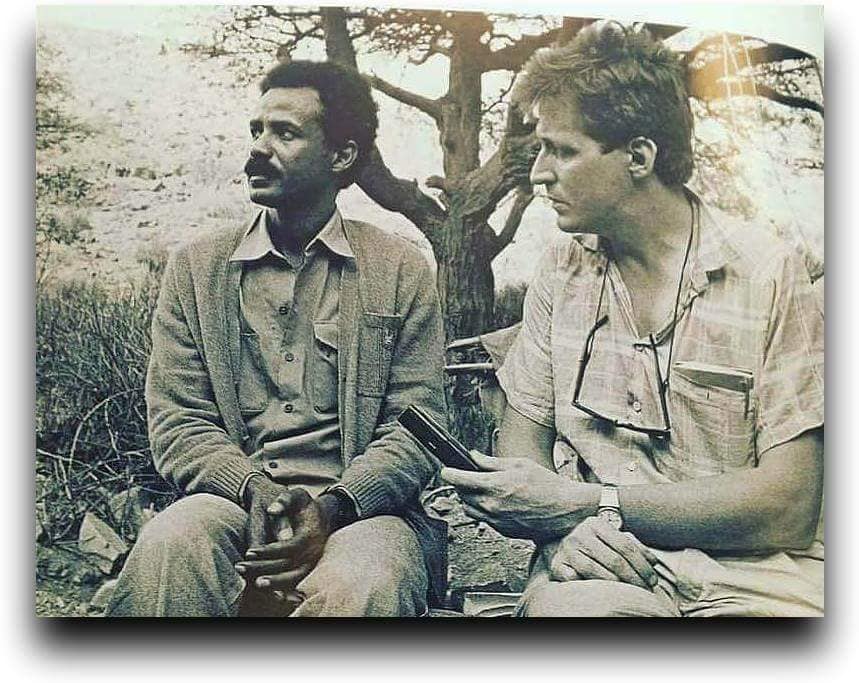
Independent Eritrea and contemporary challenges
Since independence, Eritrea has faced major challenges, not least tensions with Ethiopia. In 1998, a border war broke out between the two countries around the disputed town of Badmé, a conflict that lasted two years and resulted in considerable loss of life and property. Although peace was officially concluded in 2000, relations between Eritrea and Ethiopia remained tense until 2018, when a peace agreement was signed.
Today, Eritrea is led by Issayas Afewerki, but the regime is often criticised for its authoritarian governance and lack of civil liberties. Despite the challenges, Eritrea remains proud of its hard-won independence and its unique identity, shaped by millennia of complex history.
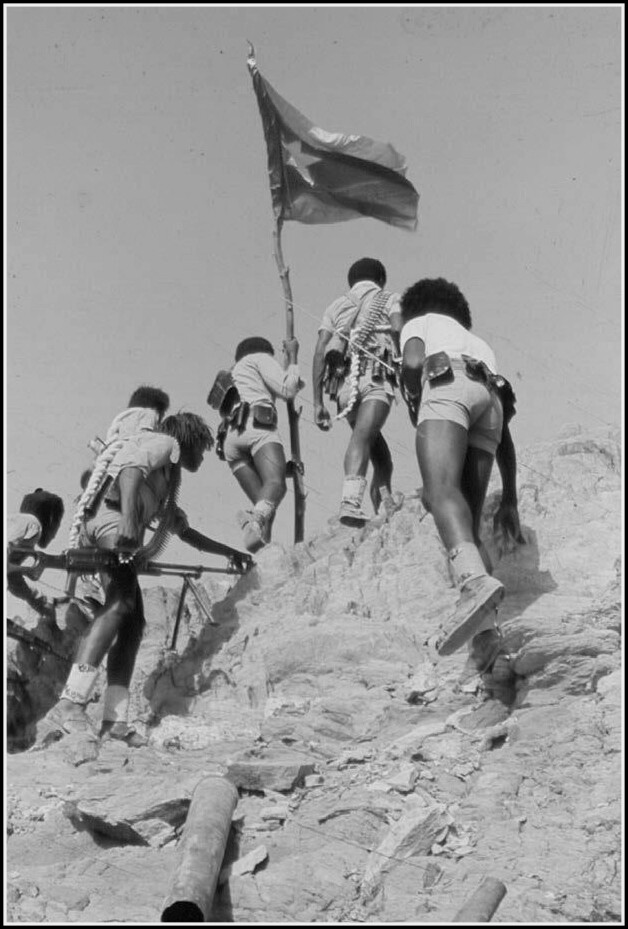
Everything You Are Not Supposed to Know about Eritrea:
Part 1, 2, 3 - 2010
Everything You Are Not Supposed to Know about Eritrea: Part 1
Interview of Mohamed Hassan
by Grégoire Lalieu and Michel Collon / June 30th, 2010
The Horn of Africa is one of the deadliest regions on that continent, rent by incessant warfare, famine and poverty … These are images familiar to everyone. But few people know that Eritrea considers it possible to escape from this vicious circle, to resolve its conflicts through negotiation and to attain a high level of development. This would be something to celebrate. Yet, in the eyes of the international community, Eritrea is a pariah state, the subject of UN Security Council accusations! In what way does this country, which nobody speaks about, threaten western powers? Mohamed Hassan reveals everything we are not supposed to know about Eritrea.
Grégoire Lalieu & Michel Collon: Is it true that Eritrea is the source of all the violence taking place in the Horn of Africa? This is what the UN Security Council seems to think since it has recently voted to impose sanctions on that country. Eritrea has been accused of providing arms to the Somali rebels.
Mohamed Hassan: These sanctions result from a campaign of lies aimed at destabilising the Eritrean government. There has been an embargo on providing arms to Somalia since 1992; international experts are in place to control the situation, and every armament today has a serial number which allows its origin to be traced. In spite of all these provisions, the Security Council has no more evidence of this alleged arms traffic that it had of the existence of weapons of mass destruction in Iraq! And once again it is Washington you find behind the campaign of lies. As a matter of fact even the US joint Secretary of State for African Affairs, Johnny Carson doesn’t believe it. The truth, he has explained, is that Somalia has been at war for 20 years and is flooded with armaments. Anybody can buy or sell them on the black market. The Somalis don’t need to go to Eritrea to obtain their supplies.
Grégoire Lalieu and Michel Collon: Equally Eritrea is accused of causing tension with Djibouti over the question of its frontier. On top of that, there was an encounter between their two armies in 2008.
MH: Eritrea has never had any territorial designs on Djibouti. Like most of the frontiers in Africa, the one that separates the two countries was drawn by the colonial powers. It was therefore laid down a long time ago and has never been disputed.
The 2008 ‘incident’ is a pure fabrication on the part of the Bush administration. Everything began in the month of April when the Eritrean president, Isaiah Afwerki, received a telephone call from the Emir of Qatar. The latter was relaying a complaint on the part of the president of Djibouti, Ismail Omar Guelleh, to the effect that Eritrea was massing troops on the frontier. Yet President Afwerki had never ordered his army to do anything of the kind and was very surprised by this call. Why was his counterpart from Djibouti acting through a third party? Isaiah Afwerki nevertheless proposed a meeting with Guelleh in Djibouti, Eritrea or even in Qatar if that was what he wanted. The President of Djibouti made no response to this invitation.
A few weeks later, on 11 June 2008, soldiers from the Djibouti army attacked the Eritrean troops on the frontier. A brief battle took place, causing some 30 deaths and dozens of injuries on both sides. The President of Djibouti immediately claimed that Eritrea had attacked his country. With disconcerting speed, the US issued a communiqué condemning the “military aggression of Eritrea against Djibouti.” The UN Security Council echoed this condemnation. It was only later that it proposed sending a commission of experts to analyse the situation on the ground and establish the facts. Why did the Security Council put the cart before the horse? On what were its accusations based? There are no matters of contention between Eritrea and Djibouti. The people of the two countries have always enjoyed very good relations. But yet again the US has been manipulating the international community and the Security Council in order to put pressure on Eritrea.
GL&MC: How is Djibouti’s attitude to be explained?
MH: President Ismail Omar Guelleh has hardly any social base. He only remains in power thanks to the support of foreign powers. As a result, he can’t refuse them anything. It is this that explains why there are so many foreign troops in Djibouti. For example, the US only has one military base in Africa – and it’s in Djibouti. This little country also shelters contingents from other countries, including the largest French military base on the continent.
So Guelleh is entirely dependent on Washington. If the US orders him to create a new regional crisis, then that is what he does. This has become a US speciality: fomenting problems in order to propose resolving them. Here the US is seeking to present Eritrea as a bellicose country that is the cause of all problems in the Horn of Africa.
GL&MC: Why should the US want to marginalise Eritrea?
MH: The Eritrean government has a vision for its country and for the region: it is possible to attain a good level of development and to resolve conflicts by dialogue provided one gets rid of interference on the part of foreign powers. Take the crisis in Somalia: Eritrea has always advocated getting all the political participants of that country round a table for the purpose of dialogue. In order to find a solution to the conflict and to rebuild Somalia, Eritrea has suggested involving civil society: women, the elderly, religious leaders, etc. Let everybody get together to overcome differences in order to rebuild a country that has not had a government for 20 years. This method would certainly be an efficient way of restoring peace in the country. The US, however, has deliberately fostered the chaos in Somalia. In 2007 it even got the Ethiopian army to attack Mogadishu at a time when peace had been restored. And on top of that, it is Eritrea that gets subjected to UN sanctions!
In fact the US is afraid that the Eritrean vision will gain adherents in the Horn of Africa. This would mean an end to US interference in this strategic region. Washington is therefore seeking to put Eritrea in quarantine to prevent the “virus” of its influence spreading. It is a technique that the US has always applied and which Noam Chomsky has studied. He talks of the “rotten apple theory”: if you have a rotten apple in a basket you must remove it straight away to prevent the other apples becoming rotten as well. This is the US’s perennial reason for seeking to overthrow governments – sometimes successfully and other times not : Castro’s Cuba, Allende’s Chile, Laos during the 1960’s … Chomsky notes that Washington in those days intervened on the pretext of defending world ‘stability’. But this ‘stability’, he explains, means only the ‘security’ of multinationals and ruling classes.
GL&MC: As far as Washington is concerned, is Eritrea then the rotten apple in the Horn of Africa?
MH: Absolutely. But the region’s real enemy is imperialism, especially US imperialism. Eritrea therefore desires that the Horn of Africa get rid of interference on the part of neo-colonial powers and develop a common project. The Horn of Africa has a very favourable geographic position: it is both connected to the countries of the Gulf and of the Indian Ocean, which is where the greater part of world maritime trade is effected. Besides which it has considerable natural resources: minerals, gas, oil and biodiversity. If the countries of this region were to free themselves of neo-colonialism and unify their efforts, they would be able to escape from poverty. This is what Eritrea wants for the Horn of Africa. Of course, the US doesn’t want these proposals to see the light of day because they could lay to rest its own control over this strategic region and access to its raw materials. Washington, therefore, is trying to put pressure on President Afwerki in order to force him to change his policies. At the end of the day, Eritrea, which had to fight so long for the independence it established in 1993, is still fighting today in defence of its national sovereignty.
GL&MC: Eritrea’s independence struggle is the longest in African history. The country was first colonised by the Italians in 1869. How did Italy, which was not a great colonial power, find itself in Eritrea?
MH: It is necessary to see this in the context of 19th century Europe. At that time, the old continent was the theatre for a merciless struggle between the imperialist powers for the control of colonies and their raw materials. There had already been strong rivalry between France and Great Britain. The unification of Italy in 1863 and that of Germany in 1871 brought to new sizeable competitors on to the scene. In addition, the capitalist world suffered its first major crisis in 1873. This crisis brought about the dismemberment of the Ottoman Empire which added further to the colonial appetite of the rival European powers. Germany, for instance, wanted to take advantage of the dismemberment of the Ottoman Empire in order to acquire new colonies. For their part, the British had their eye on Istanbul so that they would be able to block German expansion.
Chancellor Bismarck therefore decided to organise the Berlin conference of 1885. This is a major event in the history of colonialism: until that very moment, the European powers had mainly been installed in African coastal areas to set up commercial trading posts, but after that conference, they undertook gradually to colonise the continent as a whole. Therefore, to avoid new conflicts and to spur the recovery of the capitalist economy, Europe agreed on the sharing of the African cake. The British strategy was to invite a less threatening colonial power, such as Italy, to install itself in the Horn of Africa in order to block the expansion of more serious competitors such as France and Germany.
GL&MC: Europe carved up Africa but at the beginning of the 20th century, Ethiopia was the only independent country left on the continent. Why was that?
MH: This anomaly arose from a compromise between the French and the British. The former intended to expand from Dakar to Djibouti, while the latter had the ambition of extending their empire from Cairo to the Cape in South Africa. If you look at a map of Africa you will unfailingly notice that these colonial projects had to collide. In order to avoid a conflict that would have caused great losses on both sides, France and Britain decided not to colonise Ethiopia. But the imperialists did not give up their claims on its territory. They supported the army of Menelik II who ruled over one of the richest regions of Ethiopia. With the support of colonial powers Menelik II seized power over the whole of Ethiopia, which allowed the French and British to have access to the natural resources of his empire.
Finally, if Ethiopia was the only country not to be colonised, you still could not say that it was independent! The man who called himself Menelik II, Negusse Negest of Ethiopia, the conqueror lion of the tribe of Judah, chosen by God, was nothing but an agent of imperialist powers, and was incapable of building a modern state. He was chosen precisely because he was an orthodox Christian and came from one of Ethiopia’s richest regions. Menelik II therefore headed a minority regime within a feudal system where most of the nationalities were deprived of all rights. Slavery was practised. All this gave rise to numerous inequalities which even today persist in Ethiopia.
GL&MC: On the other hand, Eritrea was colonised by Italy. Mussolini was even to say later that she would be the heart of a new Roman empire. What were the effects of the Italian colonisation of Eritrea?
MH: When it colonised Eritrea, Italy’s population consisted of too many peasants. Many of them emigrated to Switzerland or France. But others left to set themselves up in Eritrea. With its picture postcard landscapes and agreeable climate, the new Italian colony gave more than one of them dreams. Colonists were implanted side by side with the peasants. The Italian bourgeoisie then invested heavily in Eritrea. It was particularly interested in the country’s geographic situation because the country has a long coastline along the Red Sea. It is close to the Suez Canal in the north and of the strait of Bab el Mandeb in the south. This is one of the busiest navigation routes in the world that joins the Red Sea to the Indian Ocean.
As a result the Italians invested in Eritrea and developed plantations, ports and infrastructure. To give you an idea of the level of development of this colony, when the British invaded Eritrea during the Second World War, they were to dismantle factories in order to remove them!
GL&MC: This seems to be a far cry from the usual ransacking and hand chopping that characterised the Belgian Congo. Was Eritrea somehow exceptional within the pitiless colonial world?
MH: There were positive aspects but there is no point in deluding ourselves. Italian colonialism was still a discriminatory system in which black people had very few rights compared to the whites. Why? Because when Italy get hold of Eritrea and a part of what is today Somalia at the end of the 19th century, it tried to extend its expansion into Ethiopia. But the Italian soldiers were defeated by Menalik II at the battle of Adoua in 1896. In the following years, fascist ideology developed among the Italian intelligentsia who wanted to restore the honour of their country that had been defeated by blacks. Therefore Italian colonialism was very racist as regards the black people. The Eritrean population within the colonial system was an inferior class. Moreover, Italian fascism (which seized power in 1922) was based above all on anti-black racism. It was not anti-semitic like German fascism. Jews worked within fascist organisations in Italy! … It was only later, towards the end of the 1930’s that Italy began to persecute Jews. This was because by then Hitler had a rapprochement with Hitler and then because the Italian fascist party needed something to give it a second wind. It therefore used the Jewish community as a scapegoat to help it mobilise the Italian population.
GL&MC: Finally, the Italian fascists took their revenge on Italy. In 1935 Mussolini’s troops invaded the only uncolonised country of Africa.
MH: Yes, even though the occupation of Ethiopia did not last very long. In 1941, at the height of the world war, the British army chased the Italians out of the region and the Allies took control of the Horn of Africa. Following the war, Ethiopia regained its ‘independence’. The fate of Eritrea, on the other hand, was subject to debate.
The Soviet Union wanted this colony to obtain its independence. The British on the other hand, rather as they had done almost everywhere, wanted to divide the country into two on the basis of religious affiliations: the Muslim areas should be annexed to Sudan and the orthodox Christians to Ethiopia. It is interesting to note that the Ethiopian church supported this option and pressed the Eritrean Christians to accept it. The church told them that if they refused they would not be buried and their souls would never reach paradise. In spite of everything, the Eritrean Christians did refuse: they felt themselves above all to be Eritreans! This feeling of belonging is explained above all by the fact that the Italians, unlike many other imperialist powers, had treated its colonial subjects without any distinction based on ethnicity. But in the end it was the third option which won the day, that proposed by the US, namely that Eritrea should become part of a federal Ethiopia.
GL&MC: Why did the US favour this option?
MH: Its geographic situation meant that Eritrea was of great importance in Washington’s eyes both during and after the Second World War. Since the 1940s, the Pentagon and the private armaments industry set up major enterprises in the country: an assembly line for aeroplanes, repair shops, a naval force… And above all, during the 1950s, the US intelligence services established in its capital, Asmara, their most important overseas telecommunications bases. At the time, the satellite surveillance systems of today did not exist and listening posts had a limited range. But from Eritrea, you could listen in on what was happening in Africa, the Middle East, the Gulf and even certain parts of the Soviet Union.
The US therefore argued for Eritrea to be reattached to Ethiopia which was allied to Washington. John Foster Dulles, an important figure in US politics, was in charge of Foreign Affairs. He admitted in a debate of the Security Council that “From the point of view of justice, the opinions of the Eritrean people ought to be taken into account. Nevertheless, the strategic interests of the United States in the Red Sea area, and considerations of security and world peace, make it necessary for the country to be reattached to our ally, Ethiopia.” That is how the fate of Eritrea was decided – with severe consequences: Africa’s longest struggle for independence was
Everything You Are Not Supposed to Know about Eritrea: Part 2
Interview of Mohamed Hassan
by Grégoire Lalieu and Michel Collon / July 2nd, 2010
Grégoire Lalieu and Michel Collon: In 1950, on the basis of a UN decision that accorded with US wishes, Eritrea became an autonomous entity within a federated Ethiopia. How well did that work?
Mohamed Hassan ((Mohamed Hassan is a specialist in geopolitics and the Arab world. Born in Addis Ababa (Ethiopia), he participated in the student movements of the 1974 socialist revolution in his country. He studied political science in Egypt before specializing in public administration in Brussels. A diplomat for his country of birth during the 1990s, he has worked in Washington, Beijing and Brussels. Co-author of ‘Iraq under the occupation’ (EPO, 2003), he has also participated in producing works on Arab nationalism and the Islamic movements, and on Flemish nationalism. He is one of the greatest contemporary experts on the Arab and Muslim world.)) : Rather badly. This decision made no sense because it forced two incompatible systems to live together. You had Eritrea on the one hand, which had benefited from development under Italian colonialism and where something of a class conscious working class had emerged ; and on the other hand you had Ethiopia led by an emperor, Haile Selasse. That regime was feudal, had no constitution, still practiced slavery and afforded no political rights. But as it was a federal system, Eritrea retained its own flag and parliament and even its unions and independent press … All things that were banned in Ethiopia!
This strange cohabitation was to lead indirectly to an attempted coup against the emperor Haile Selasse. Ethiopian officers travelled to Eritrea and noticed major differences from their own country. Besides that, the Pan African movement and the rash of independence proclamations affected the way the whole continent thought. Certain Ethiopians began to see that their regime was a backward one. Among these people was Girmame Neway. He had studied in the US and had been a governor of certain provinces of the Ethiopian empire. With the help of his brother who was a member of Selasse’s bodyguard, he attempted a coup in 1960 at a time when the emperor was on a visit to Brazil. But the Ethiopian army was not behind the movement and the coup failed. When Selasse returned there were two options available: either he maintained the federation with Eritrea and offered his own people the same rights as were enjoyed by the Eritreans or else he had to annexe Eritrea completely. The first option would have spelt political suicide for Selasse. As a result, Ethiopia annexed Eritrea in 1962.
GL&MC: With the implicit support of the UN! Why did the international community not protest?
MH: Yes, that’s pretty incredible. When Selasse annexed Eritrea, he ordered the arrest of newspaper editors, exiled nationalist leaders, banned trade unions and forbade the use of Eritrean native languages in schools and in official transaction. Equally he transferred Asmara-based industries to Addis Ababa. The idea was to make Eritrean workers move to Ethiopia and to depopulate Eritrea in order to turn it into a military base. Moreover, when Ethiopian troops were surrounding the Assembly and jets were flying over Asmara, the Eritrean parliament was forced into the humiliation of having to vote for its own dissolution.
Eritrea voted strongly and demanded UN mediation but got the reply: “Your request must first be referred to the federal government”, i.e., to Haile Selasse himself! In other words, the Ethiopian regime had the blessing of the imperialist powers, and in particular of US imperialism which dominated the UN. Emperor Selasse was supported everywhere and took advantage of this to give himself a good image, that of being the father of the African continent. Nobody opposed him – which was a grave misfortune for the Eritreans.
GL&MC: How come Ethiopia became a privileged ally of the US?
MH: During the 1940s, the US wanted to weaken their European competitors and began to take an interest in Africa. But the French and the British already held many colonies on that continent. Ethiopia, however, had not been colonized. For Washington, it was therefore the door through which it was going to be able to gain entry into Africa in order to spread its influence and compete against the colonial powers. Feudal Ethiopia thus became a US puppet, taking part in the wars in the Congo, in Korea … Later, when most African countries became independent during the 50s and 60s, Washington exerted pressure for the newly-created Organisation of African Unity to be based in Ethiopia. This would enable the US to control the whole continent. Just like the Shah in Iran, or like Israel in the Middle East, Ethiopia was to be a US policeman in Africa, albeit an underdeveloped one.
GL&MC: Once having exhausted all the diplomatic channels of the international community and organized peaceful demonstrations, Eritrea went on to launch an armed struggle.
MH: Yes. First it was waged by the Eritrean Liberation Front (ELF). The ELF was made up of various nationalist groups who sought independence. At the political level this movement was dominated by bourgeois interests and its socio-economic analysis was weak. At the military level, the ELF followed the Algerian model of resistance, a system according to which armed groups were divided up by region. This was a serious tactical error. This was firstly because most of the time the units spread over the different regions did not speak the same language. Thus, while you are fighting for the independence of a state, you are contributing at the same time to creating divisions which will one day undermine that state! Moreover, this cutting up of the resistance into autonomous groups gave rise to coordination problems that the enemy was able to exploit. For example, when a group was attacked in one region, its neighbors did not come to its aid. For the Ethiopian army it was a lot easier to fight separate groups that were isolated from each other.
The ELF’s lack of political vision, its military strategy and its internal divisions brought about the decline of the movement. But in the 1970s, progressive Muslims and Christian member of the ELF decided to form their own group, the People’s Liberation Front of Eritrea (EPLF). Inspired by Marxism, this movement drew lessons from its predecessor. It knew that it was necessary to mobilize the population as a whole rather than creating divisions. Its political vision was also a great deal more focused, being based on a proper analysis of Eritrean society. Rather than a mere armed struggle, the EPLF initiated a real revolution: the emancipation of women, the organization of democratic village councils, agrarian reform, education… All that allowed it to mobilize the Eritrean in support of its combatants. This was absolutely necessary to enable Eritrea to win its independence.
GL&MC: Nevertheless, the struggled seemed to be doomed to failure. Ethiopia had support from all over the world and Eritrea was struggling practically on its own against everybody.
MH: That’s true. Ethiopia was supported by the US, and also by Israel which wanted to forge alliances with the non-Arab countries of the region. Incidentally, at the time of the attempted coup against Selasse in 1960, it was thanks to Israel that the emperor – then on a visit to Brazil – was able rapidly to contact one of his general and organize the defeat of the rebellion. Later, Ethiopia was to present the Eritrean resistance as an Arab threat to the region, enabling it to secure the support of the Hebrew state. Israel specialists in counter-revolution trained an élite Ethiopian force of about 5,000 men which was known as the ‘Flame Brigade’.
Europe too supported Ethiopia by supplying it with arms. The Ethiopian government was above all the principal beneficiary of European aid to Africa. Selasse, the emperor, had a very strong presence on the African continent, which the Eritreans did not appreciate at all. I have explained to you how the US put pressure to have the OAU installed in Ethiopia. In the 1960s, in order to prevent wars from breaking out all over the continent, this organization decreed that the borders inherited from the colonial period were non-negotiable. But obviously this decision was not applied in Eritrea’s case. The Ethiopian claims over Eritrean had no legitimacy. It is as if Italy were to claim France on the basis that Gaul had been part of the Roman empire! But Selasse had the whole of the West behind him and such was his influence in Africa that the OAU simply turned a blind eye.
GL&MC: In 1974, after reigning for 44 years, Emperor Selasse was finally overthrown by a socialist revolution. But the new Ethiopian government did not grant Eritrea its independence. Why was that?
MH: The Ethiopian revolution came about as a result of an alliance between progressive civilians and military personnel. But very soon divisions appeared in their movement. Naturally, when the soldiers seized power, revolutionary students and intellectuals quickly demanded that the army should work towards a transition to civilian government. They, moreover, supported Eritrea’s right to independence. But the ruling military junta, called the Derg, was very chauvinist: there was no question of it giving up Eritrean territory. Moreover, the military had no intention of ceding power to civilians. Therefore the army launched a campaign of arrests and assassinations which, according to Amnesty International, resulted in over 10,000 deaths, principally among intellectuals and students. The Ethiopian revolution was thus purged of its most progressive elements and the military definitively seized power.
At the head of the Derg was Lieutenant Colonel Mengistu Haile Marian. His background was humble. His father was a soldier and his mother a servant. In power until 1991, Mengistu established a totalitarian regime and undertook the militarization of the country. Naturally, he wanted nothing to do with any kind of autonomy for Eritrea and he was severe in his repression of the resistance. At the end of the day, the Ethiopian revolution only meant passing from one dictatorship to another. At the height of the cold war, this country, which until then had been a strategic ally of the US, tumbled into the Soviet embrace. At that time Moscow provided major military support to Mengistu in his repression of the Eritrean resistance.
GL&MC: Twenty years earlier the Soviet Union had tended to favour Eritrean independence. How do you explain the change?
MH: First of all, Moscow in the aftermath of the Second World War, supported Eritrean independence because the US supported its annexation by Ethiopia. Obviously, once Ethiopia became an ally of the USSR, Moscow saw things differently. Besides, the Soviets in the aftermath of the Second World War understood the world and the Horn of Africa better. At that time they knew that as a former colony Eritrea had legitimate claims. However, later on Moscow’s foreign policy changed and became stupid. Its world outlook withered.
In fact, in the 1950s, the head of state Nikita Khrushchev developed a special new theory as to who the Soviet Union should support socialist revolutions in Africa: African countries had no need of a vanguard to direct their revolution as the USSR would be their vanguard party! Khrushchev expected to transpose the Russian experience of revolution to African countries without really taking into account the specifics of their situations. It is possible to express this in another way: the Soviets had had a shoe made to fit and they thought this shoe would fit everybody; and if your foot was too big, then all you had to do was to cut off your toes to make the shoe fit! Khrushchev’s theory was every bit as ridiculous as that. This explains why the Soviet Union had no real idea of what was happening in the Horn of Africa and supported Ethiopia. It was a mistake.
GL&MC: What was the impact of the resistance in Eritrea?
MH: Until then the Eritrean fighters had secured famous victories. The people supported the resistance. Many joined the ranks of the combatants, especially because the Ethiopian army regularly attacked the people, setting fire to villages and massacring civilians… Rather than frighten the Eritreans, these acts of repression strengthened the conviction that cohabitation with Ethiopia was not possible and the struggle for independence was absolutely necessary. In 1975 for example, numerous young people joined the EPLF after 56 Eritrean students were executed.
Also the strategy developed by the resistance had become very sophisticated. One example: Eritrea had practically no support and was fighting alone against everybody, which was problematic as far as arms procurement was concerned. Lacking any ally, the EPLF used its enemy as its main support! The fighters waged guerrilla attacks against Ethiopian soldiers and with every victory they gathered up their enemies’ arms. Over the years the resistance in this way became much better equipped, boasting even of heavy artillery. Imagine: the Ethiopian soldiers had to fight against their own tanks ! Thanks to this technique, the EPLF’s status rose from a guerrilla army to a mechanized army.
GL&MC: But it didn’t foresee that the Soviet Union would come to the rescue of the Derg in 1977!
MH: This was a difficult time. The red navy shelled the EPLF’s positions along the coast, Moscow sent 3,000 military advisers and an air lift to Addis Ababa brought in a quantity of arms. We calculate that the Ethiopian army received at that time 1,000 tanks, 1,500 armoured cars as well as 90 fighter planes and combat helicopters. Strengthened by Soviet support Mengistu in February 1982 launched an offensive along a broad front against Eritrea, i.e., the ‘Red Star’ campaign, with 150,000 men, the biggest battle witnessed by Africa since the Second World War.
GL&MC: In spite of all that Mengistu never managed to finish off the EPLF…
MH: All the same it was the hardest period of all the independence struggle. The EPLF had to abandon territory it had conquered in order to respond strategically. Besides, Mengistu had got Sudan to close off completely its frontier with Eritrea: for weeks there was no petrol, no food or any of the other supplies that were normally sent via Sudan. There was no opportunity either for refugees to reach camps the other side of the border. In spite of everything the Ethiopian army did not manage to wipe out the EPLF. It must be said that the movement was very well organized. Of course, the Ethiopian soldiers outnumbered them and were better equipped. But they were just under the orders of a dictator. For their part, the EPLF fighters were better trained and their motivation was greater.
Lastly, the ‘Red Star’ campaign marked the turning point in the long struggle for independence. It was the last time that the Ethiopian government was any real threat to the resistance. Once the offensive was over after several months of fighting, the EPLF retook the territory that it had been forced to abandon. Some years later, the USSR, as it was on the point of collapse, announced to Mengistu that it would no longer supply him with arms. The Ethiopian government began to vacillate. It had not only the Eritrean resistance to face but also other nationalist groups that had been set up in other parts of Ethiopia. Among these groups was the Front for the Liberation of the Peoples of Tigré (TPLF) which fought with the Eritreans. At the beginning this Front sought independence for the region of Tigré, but the EPLF knew how dangerous it was to be divided on the basis of nationality and advised that “You are, first and foremost, Ethiopians; it is as Ethiopians that you should fight and encourage your compatriots to overthrow the military dictatorship.” This is what happened in 1991: the Derg fell, Mengistu ran away and, after 30 years of struggle, Eritrea became independent.
GL&MC: After all these changes, how did relations between Ethiopia and Eritrea develop?
MH: Ethiopia is a country made up of different ethnic groups. Whether it was under Menelik II, Selasse or Mengistu, the regime that was in power never represented the diversity of the Ethiopian people. The country has always been ruled by minorities acting in their own interests, giving rise to major inequalities among the population. When the new government took power in 1991 everybody thought things were going to change. I, myself, agreed to work as a diplomat for that government. Eritrea also was full of hope. By becoming independent it had deprived Ethiopia of access to the Red Sea. But the Eritrean president, Isaias Afwerki, proposed creating a free trade zone for the two countries: this allowed Ethiopians to use the Eritrean harbors very easily. The basis of cooperation among the countries of the Horn of Africa was laid and it seemed that peace would return for good.
GL&MC: But you soon became disenchanted?
MH: Since 1991, Meles Zenawi, the leader of the Tigré movement, has been in charge in Ethiopia. And he has no political vision. He has followed tradition in governing in the interests of himself and his entourage without taking into account the ethnic diversity within the country. Moreover, rather than finding ways of adapting the institutions inherited from Mengistu, the new government merely destroyed them. For example, it demobilized the Derg army rather than start up a democratic dialogue to find ways of developing things. As a result, many officers who had spent their whole lives in the army found themselves unemployed. The new government cheerfully destroyed the Ethiopian civil service. Naturally, the US ambassador was overjoyed in seeing this: Ethiopia was once again at the mercy of imperialist interests
Everything You Are Not Supposed to Know about Eritrea: Part 3
by Grégoire Lalieu and Michel Collon / July 3rd, 2010
The whole of the Horn of Africa is occupied by neo-colonial power. Well, not entirely… One small country of indomitable revolutionaries still holds out against the invaders. In this third and last part of our chapter on Eritrea, Mohamed Hassan reveals the secret of the Eritrean Revolution. Can an African country develop itself while leaving the multinationals at its gate? Why do relations remain strained as between Eritrea and its Ethiopian neighbor?
Grégoire Lalieu and Michel Collon: After 30 years of struggle, Eritrea became independent and the Eritrean People’s Liberation Front (EPLF) took power in 1993. How did the EPLF cope with the transition from armed struggle to government?
Mohamed Hassan: From the start, the EPLF did not restrict itself to waging an armed struggle against the Ethiopian occupation, but developed a proper political program: agrarian reform, emancipation of women, the installation of democratic councils in the villages…. In all the areas it controlled, the EPLF set up structures to provide for basic needs such as health, education and food. When Eritrea gained its independence, the EPLF continued to promote the political program it had initiated during the independence struggle, which incorporated a specific political outlook: ‘We don’t need to rely on the West in order to develop’.
Of course, in order to win its independence, Eritrea had had to fight practically on its own against all the great powers – the US, the Soviet Union, Europe, Israel. All these countries supported the Ethiopian occupation. This special situation contributed to shaping the political perspective of the Eritrean resistance and taught it self-reliance. It knew from experience that the neo-colonial powers set Africans against each other in order to better plunder the continent’s wealth. Eritrea therefore chose to adopt a development policy that left no room for interference from foreign powers.
GL&MC: And could that work? Can an African country develop without western aid?
MH: Obviously! At the present time all over Africa countries are celebrating the 50th anniversaries of their independence. But the fact is that the continent never actually freed itself from colonialism which just took on a different form. Today, thanks to institutions such as the WTO, the West is imposing trade regulations that allow its multinationals to loot Africa’s richness and subjugate its people. These multinationals are flooding the continent with subsidized products that prevent local producers from prospering. And all this is possible because at the head of most African states there are pro-western minorities who profit from the system while the vast majority of the population is condemned to poverty. So therefore yes, an African country can certainly develop without western aid. This is because so long as the West continues to act as a colonial power, it will continue to block the development of Africa.
GL&MC: Can one really speak of the ‘Eritrean revolution’?
MH: Absolutely. The government established a model of development resting on 5 pillars. First and foremost, food security. Eritrea cannot defend its national sovereignty if its population is dying of hunger. In this regard, the country can rely on two things inherited from Italian colonialism: rain-fed agriculture, on the one hand, and the mechanized system used in the plantations, on the other. Moreover, agrarian reform allocated to each peasant his own piece of land. The government at the same time set up tractor stations to make tractors available to the peasants and even proposed to provide them with help in their work. Agriculture is hard work, especially when using only rudimentary equipment. However, with government help, peasants can be freed to spend time learning to read and to retrain in other trades.
The second pillar is access to drinking water. In Africa many illnesses are linked to unsafe water. But that can be put right by providing safe drinking water to all the villages.
Now we come to the third pillar: health. Eritrea has an efficient network of clinics spread throughout the country and linked up to hospitals. Moreover, healthcare is provided free. You can compare this with Ethiopia. Over there if you don’t have a lot of money, you’re dead! And even then … a very famous singer, the Elton John of Ethiopia, had serious diabetes problems. The authorities moved him from hospital to hospital but none had the wherewithal to treat him. The result was that the Ethiopian star died.
The fourth pillar is education, a priority for the government that wishes to develop its human resources. In Africa many have lost sight of the fact that material resources are not enough to bring about development. Of course this very much suits the imperialist powers who have always encouraged the belief that without their assistance Africans would not be able to profit from their material resources. The human factor is of primary importance for development, and Eritrea therefore wants its own personnel to have the competence to exploit its raw materials.
The last pillar is the Eritrean expatriates who send money home to their families. In doing so they pay a percentage to the government, which gives it a considerable source of income. The CIA has tried to disrupt this source of finance but has not succeeded.
GL&MC: So these expatriates pay double tax: once in the country where they live and then again to the Eritrea government.
MH: Yes, but they know that this money goes to building schools, roads and hospitals – not a villa for President Isaias Afwerki whose lifestyle is modest. Moreover, these expatriates are closely linked to their country and know who they have to thank for Eritrea’s liberation. The mobilization of the people, both inside and outside the country, is essential for the Eritrean revolution.
For example, when the Italians colonized Eritrea, they built a railway line linking the port of Massawa to the capital, Asmara. But during the war of independence, the Ethiopians used some of the steel on the railway line and damaged it in the building of trenches. When Eritrea gained its independence, the government wanted to rebuild this strategic route. Western companies offered to undertake the work, quoting massive sums up to $400 million! Eritrea answered: no thanks, we’ll do the job ourselves. The entire population was mobilized: the young, the women, the elderly. And they rebuilt the line which today is functioning again. The cost of this work? $70 million. The idea is to do everything one can oneself and not to depend on foreign powers. Moreover, Eritrea is probably the only country in the world where there are no foreign experts.
GL&MC: Is Eritrea then proof that an African country can free itself from neo-colonialism in order to develop?
MH: The fact is that everything depends on your priorities. If you make health, education and food security your priorities, you can develop very well. If on the other hand, as in many African countries, you are primarily concerned with meeting the requirements of world trade, then you’ve had it.
John Perkins, formerly a respected banker, has written a fascinating book called Confessions of an economic hitman. Perkins describes how his work consisted of helping the US to extort billions of dollars from poor countries by lending them more money than they could repay. If you govern a country of the South and you accept these projects from institutions such as the World Bank or the IMF, your economy is going to be thoroughly destabilized, corruption is going to arise, and the imperialists are going to control you. This is why today, even before the CIA is sent to destabilize governments considered too independent, it’s the economic hitmen who are mobilised first. Wherever corruption is rampant, imperialism has succeeded. And the Eritrean government fights actively against this.
GL&MC: Eritrea is made up of different ethnic groups. How does the government manage to overcome this diversity in mobilizing the population, when this is a source of division in many African countries?
MH: Equality between nations is a fundamental principle of the Eritrean revolution. If you respect diversity and you treat all ethnic and religious groups equally, you can rely on the support of the population. In Eritrea there are as many Christians and Muslims, and no fewer than nine ethnic groups: the Tigrays, Afars, Kunama, Saho, etc. But they all feel themselves to be Eritreans first and foremost. Culture too plays a very important role. The Eritrean leaders have always paid careful attention to cultural diversity, encouraging each ethnic group to value its traditions and to share them. Everywhere in Africa, people from different ethnic or religious groups are killing each other. But in Eritrea, they organise dance festivals!
GL&MC: Yet with their Ethiopian neighbours the entente is unfortunately not so cordial. Why do tensions persist?
MH: Nowadays Ethiopia is ruled by the Tigrayan minority who in the 1970s were part of a separatist movement, the Tigrayan People’s Liberation Front (TPLF), and they fought the Mengistu military dictatorship on the side of the Eritreans. Nevertheless, the Tigray region has, unlike Eritrea which is a former Italian colony, always been an integral part of Ethiopia. Besides, the Eritrean resistance always advised the Tigrayans not to confine themselves to fighting for the liberation of their own community but also for that of all their fellow citizens, regardless of nationality. Moreover the EPLF was always aware that the liberation of Tigray would not bring necessary about the liberation of Eritrea. A regime change in Addis Abeba was necessary, and the resistance needed to unify their efforts for that purpose.
In 1991 the military dictatorship was overthrown. Thanks to the assistance and advice provided by the Eritreans, the Tigrayans took power. Until then Ethiopia had always been ruled by ethnic minorities serving their own interests. Everybody thought the new government would break with that tradition and would apply the principle of equality and development in their country. But Prime Minister Meles Zenawi who has now led the country since 1991 and who has just been re-elected through electoral fraud, followed the precedent set by his predecessors: Menelik II, Selassie or Mengistu. He has no political vision and rules in accordance with his own self-interest. He is able to hold on to power only with the support of the US.
GL&MC: We saw in the last chapter that Emperor Selassie’s Ethiopia was a privileged ally of the US. But under the Mengistu military dictatorship the country swung to the side of the USSR. How did it get back into the US sphere of influence?
MH: The Soviet Union made a mistake in supporting Mengistu’s so-called socialist regime. The US, on the other hand, understood the situation better. They knew that the Ethiopian regime lacked a social base and was, as a result, very vulnerable. In fact, imperialist powers can never hope for a better state of affairs. For a government which does not represent the people in all their diversity and which only acts in the interests of a minority is never going to be able to hold on to power without the support of foreign powers.
Washington knew very well what the nature of the Mengistu regime was and entertained the hope that Ethiopia would returned to its sphere of influence. Of course, once Meles Zenawi came to power their hopes were well exceeded! Not only was the new government acting in its own interests and lacked any social base, but in addition it had destroyed all the institutions inherited from Mengistu, emptying the body of the state of all substance. Today Zenawi is as a result completely dependent on the financial, military and diplomatic support of the US. Therefore he can refuse nothing. Washington wants to invade Somalia? That’s OK! Washington wants the Ethiopian army to invade Somalia? That’s OK! There are not even any negotiations. Washington demands and Zenawi obeys. This is just the opposite of what Eritrea wants for the Horn of Africa, i.e., an end to foreign interference. This is why today Eritrea refuses to normalize relations with its Ethiopian neighbor. Yes, it does promote dialogue between regional forces aimed at resolving conflicts and establishing bases for cooperation. But so long as one of the actors remains a puppet manipulated by Washington, this project cannot be realized.
GL&MC: Yet after Mengistu’s overthrow in 1991, there were cooperation accords drawn up between Eritrea and Ethiopia. Why have these not worked?
MH: Yes, the countries did draw up free trade agreements providing for the gradual elimination of economic barriers, cooperation in the financial and monetary sectors, free circulation of people, etc. Once Eritrea became independent, Ethiopia lost its access to the Red Sea. But these agreements allowed the Ethiopians free access to Eritrean ports. In Assab, for example, the proportion of Ethiopian employees was very high. Ethiopia was even allowed to open there four schools following its own curriculum.
The Eritrean leaders really hoped they would be able forge a fruitful cooperation with their Ethiopian counterparts. They knew them well, they had fought together. But this overlooked Meles Zenawi’s lack of political vision and his submission to US imperialism.
GL&MC: In a short time, Eritrea and Ethiopia went from cooperation to war. A border conflict turned the brothers into enemies in 1998. What was at stake in this war?
MH: The border issue was only a pretext invoked by Zenawi as an excuse for trying to overthrow the Eritrean government. This frontier is one of the best demarcated frontiers in Africa. It was laid down and several times confirmed by agreements concluded between the Italian settlers and the Ethiopian empire at the beginning of the 20th century. Later on it was also used to demarcate the territory of Eritrea, first as a federal entity and then as an Ethiopian province. It was internationally recognized.
But Meles Zenawi challenged its validity towards the end of the 1990s. Until then the Eritrean president, Isaias Afwerki, had not paid much attention to this question and he thought his Eritrean counterpart was in agreement. Afwerki knew that the frontier was clearly defined and moreover that its importance was a minor consideration in view of the agreements between the two countries which established the free movement of people. He equally thought that the socio-economic challenges facing the region were more important.
This was all spoilt when Ethiopia attempted to annex the disputed areas and to impose ‘facts on the ground’. Addis Abeba produced a map of the Ethiopian state that included large areas of Eritrean territory and it intensified its military incursions in the disputed areas, driving out or imprisoning its inhabitants. In May 1998, the skirmishes between patrols along the frontier broke out into open conflict. Eritrea won the first battles and quickly re-established control over the contested territories.
Here we can see very well the different ways in which Asmara and Addis Abeba interpreted the conflict. For Eritrea it was clearly a border conflict: once its territories had been recovered, it held its position waiting for international authorities to come and confirm its right to do so. And in fact in 2003, the International Arbitration Court at The Hague supported Eritrea on the subject of the border. For Ethiopia, on the other hand, the motivation for this war was quite different. It was a question, according to declarations made by Ethiopian leaders of ‘putting an end to Eritrean arrogance’, ‘inflicting punishment’ and ‘teaching the EPLF a lesson for once and for all’.
GL&MC: Is this the explanation of the major offensives launched by the Ethiopian army afterwards?
MH: Absolutely. After Eritrea regained control of its territories, battles continued spasmodically. But on 12 May 2000, the Ethiopian army launched a new offensive with between 50,000 and 300,00 men. Addis Abeba had also reorganized its command structure and spent more than a billion dollars on arms. The battlefield spread well beyond the disputed frontier areas. The border dispute became a veritable invasion. Ethiopia was not seeking to regain control of the disputed territories but to overthrow the government. It had also carefully chosen the moment for attacking, i.e., the period when the peasants were beginning to sow their fields. By penetrating into the most fertile region of Eritrea, the Ethiopian army intended to drive out the peasants and starve the country.
And in effect this war was a humanitarian catastrophe, but Ethiopia did not manage to capture Asmara, the capital. Outgunned and outnumbered, the Eritrean fighters resorted to their guerrilla tactics and drove back the invader.
GL&MC: Why did Meles Zenawi want to overthrow the Eritrean government?
MH: Zenawi wanted to make Ethiopia the dominant power in the Horn of Africa and build a social base for himself. In Ethiopia power is concentrated in the hands of the Tigrayan minority, which only constitutes 6% of the population. Moreover, the leaders holding office in Addis Abeba were a long way from the region from which they hailed. With this war against Eritrea, Zenawi wanted to give himself an opportunity to realize the dream of the Ethiopian empire to rally the masses. This worked for a while: the contradictions emerging within Ethiopian society were masked by patriotism. But the defeat of the Ethiopian army and its methods of combat very quickly caused the inequalities to reassert themselves.
In fact, while the officers were Tigrayan, most of the soldiers were from the Oromo and Amhara ethnic groups, which are demographically the largest. During the great offensive launched against Eritrea, the Ethiopian officers used the human wave tactic inherited from the First World War. This technique consists of sending out against defended position such a huge number of soldiers that the enemy gets overwhelmed. Obviously, manpower losses are enormous and history has proved that this tactic has its limitations. But the Tigrayan officers of the Ethiopian army failed to take this into account and stupidly sent to the slaughter thousands of Oromos and Amharas without even then being able to defeat their opponent. For Zenawi, his defeat by Eritrea and the contradictions within his army ended his hopes of building himself a social base. He could only count on support from one section of the Tigrayan community, which is not much. His re-election was rather surprising. Fraud was obvious and opposition to his regime is growing more and more. Who knows how long Zenawi is going to be able to hold it down?
There were irregularities associated with the last Ethiopian election. But in Eritrea, there have been no presidential elections since independence in 1993. Nor is there any opposition – a single government governs the country. Is Eritrea a dictatorship? In Africa, political parties don’t exist and multi-party democracy doesn’t work. This is above all because this political model gives rise to divisions. In the Congo, for example, there are almost as many political parties as inhabitants. The aim of all that is to divide people, no longer according to their tribes as in the past, but according to their political parties. These are low intensity democracies.
Besides, the multi-party system doesn’t work in Africa because this model is a Trojan horse for the imperialists. The neocolonialists fix the democratic game by financing candidates that best meet their requirements: access to raw materials for their multinationals, support in foreign affairs, etc. With the multi-party system in Africa, the imperialists tell you every 4 or 5 years, ‘Go and vote for the candidates we have chosen for you. They will make you poor and kill you. Vote for them’!
The thing is to know whether multi-party democracy is an ideal to which every country must necessarily aspire or whether a state is free to choose the political system that best suits its specific conditions, its history and its culture. Bearing in mind the ethnic and religious disparities in Eritrea and that mobilization of the people is an essential component in its model of development, then you must favor a system that strengthens the unity of the people. A single party system therefore corresponds better to the specific needs of Eritrea than a multi-party system.
GL&MC: In the West we often tend to believe that our model of democracy is the best. Is this wrong according to you?
MH: The democracy that the West promotes is democracy for the minority. Power does not rest in parliament or in the political parties. It lies behind the scenes, concentrated in the hands of those who have money, run the economy and finance the parties. But this economic élite has never been elected through universal suffrage. Nevertheless it is they who hold most of the power. Is that democracy?
Let me give a very simple example: advertisements aimed at children. Scientific studies have established that advertisements aimed at children have a negative effect on the development of the youngest ones. If the population had the right information about this subject and you asked them to pronounce on this question, there is no doubt that they would choose to proscribe this kind of advertisement. However, most western governments have always rejected this idea, under pressure from various lobbies. Here therefore you can see clearly that the interests of the economic élite take priority over the popular will.
In his book Failed States, Noan Chomsky worries about the democratic deficit in the US. We won’t return to the question of the election – strange to say the least – of George W Bush as opposed to Al Gore in 2000. Meles Zenawi would probably not have fared any better. Chomsky mentions another pertinent fact. When the Bush administration presented its February 2005 budget, a study revealed that the population opposed his policies. Where he was increasing the budget, public opinion wanted him to decrease it (defense, the Iraq and Afghanistan wars, oil dependency, etc.). On the other hand, where public opinion wanted the budget to increase, there it was reduced (education, deficit reduction, support for war veterans, etc.).
It would take too long to analyze here all the failings of western democracy. But to believe that this model is the perfect example is very presumptuous and far from the truth. The Bolivian Vice Minister of Culture recently offered a personal definition of democracy: “A country is democratic when the fundamental needs of all its citizens are met.” If you align yourself with this concept, the West has a great deal to learn from Eritrea as far as democracy is concerned.
GL&MC: President Isaias Afwerki has conducted the resistance against Ethiopia and presided over the country since its independence. Didn’t he promise elections?
MH: He has said that the country needs democracy, but in order to meet that need it was first of all necessary to build a basis for it. Eritrea is a young country, still marked by its war against Ethiopia. All is not perfect, there’s still some way to go. In my view, Eritrea is a popular democracy where people have access to healthcare, don’t risk their lives drinking a glass of water, have jobs, food, electricity … I would rather live in a country like that than in a supposed democracy such as the Congo or Ethiopia. If in spite of everything Eritrea is to be regarded as a dictatorship, then I prefer to live under that kind of dictatorship. For me and my children, because I know that they will lack nothing and will be able to go to school.
GL&MC: The Eritrean government is often criticized for its record on human rights in particular religious freedom. Apart from the four religions recognized by the state (the Eritrean Orthodox church, the Catholic church, the Eritrean Evangelical Lutheran church and Islam), all other religious groups are proscribed. How do you explain that government policy?
MH: All the other religions are not proscribed, but if you want to adhere to a belief other than those authorized by the government, you need to make a specific application and submit a file that mentions in particular any sources of foreign funding. It’s a question of ensuring a measure of protection for the government against exported religions that serve political interests, in particular protestantism and the pentecostal trend.
Pentecostalism has come straight from the US and is closely linked with the American far right that surrounded president George W Bush. In the name of freedom of religion, this virus attacks African youth with a view to destroying it by promoting material success and exacerbating individualism.
Very close to Anglo-Saxon values, these religions exported to Africa have always served political interests, allowing Great Britain and mainly the US to infiltrate African society. Already in 1946 the French Consul General in the Belgian Congo was worried: “The US government, not fearing to divert missionaries from their true calling, uses them to extend its influence over the countries of central west Africa …. There is no doubt that they [the missionaries] have considerable funds at their disposal and that in this way the natives are drawn into the US orbit.”
Today their techniques are even further improved with the Pizza Land method! Imagine: I am a US protestant missionary and I arrive in Africa. I locate eloquent young people and recruit them. They are very poor, and it’s enough for me to have a bit of money to be able to convert them. In a way, I buy them. Then I send them to the US, to marketing schools whose methods are like those of Pizza Land, a food processing firm using very aggressive marketing techniques. Once trained my young preachers return to Africa where they begin their conversion work, giving numerous lectures, setting up music group, establishing TV stations… The US has designed this system of influence that is used all over the world.
Eritrea fights against all this because this religion revolves round material wealth and individualism. Some preachers drive around in 4x4s and sport gold watches: this is supposed to prove that they have been blessed by the Lord! But in Asmara what is promoted is general well-being and solidarity. For another thing, military service is obligatory in Eritrea. It is matched with a period of civil service during which young people assist in building hospitals or helping farmers with their work, for example. But the government has begun to experience problems when young protestants refuse to carry out these tasks on the pretext that their religion forbids it. This is why today in Eritrea you can adhere to any religion you want, but you have to first show its credentials. The government does not want the youth to be infected by this virus.
GL&MC: Even if it’s a question of the well-being of the population of the country, should the government not give its citizens the freedom of choice?
MH: You can’t speak of choice when the missionaries are offering money to people who have very little. When you are destitute, you don’t have the luxury of making choices. You naturally opt for the solution which seems to you to be the most advantageous. It’s almost a question of survival. It may seem strange, looked at from the West, that a state should impose restrictions on the freedom of religion. But in Africa, in countries which experience poverty, you can’t talk of freedom of choice when protestant missionaries are buying people in order to convert them, to infiltrate the society and to interfere in public affairs.
GL&MC: Another point on which Eritrea is regularly criticized in the freedom of the press. Why are privately-owned media proscribed in that country?
MH: Privately-owned African media don’t exist. In order to set up a private medium of communication you need a large amount of capital and you have to compete against western media groups in a liberalized market. This is virtually impossible for small states from the South. During the 1970s, several Third World countries denounced cultural imperialism, of which they were victims, for example a communications expert, Herbert Schiller, said: “The totality of the processes by which a society is introduced into the modern world system and the manner in which its ruling class is brought, either through fascination, pressure, force or corruption, to create social institutions in such a way as to correspond to the values and structures of the dominant centre of the system or to make itself the promoter.” UNESCO at that time was launching the New World Order of Information aiming to reorient the information flow throughout the planet. But the western countries boycotted this enterprise, with Great Britain and the US even walking out of UNESCO.
The western countries thus occupy a position of hegemony over the world of information and they use the media as a propaganda arm to serve their own interests in the Third World, and in Africa in particular.
This kind of practice started with the Italian fascists in the 1920s. And during the Second World War, the Grand Mufti of Jerusalem was invited to speak on the Arab program of Radio Roma to incite the colonized peoples to rise up against the British enemy. The imperialist countries learnt lessons from this war propaganda and improved it technologically. So today the BBC has a very full international program. And Voice of America, the US government’s international broadcasting service, is very much present in Africa, transmitting in Amharic, Tigrayan, Somali, etc.
Obviously, the big international media which depend directly on the government of their countries or belong to rich capitalists are not going to throw any flowers towards countries of the South who attempt to resist imperialism. That is why, with the aim of protecting itself against this media war in which all countries are not equally well armed, Eritrea decided to prohibit privately-owned media.
GL&MC: Has the creation of Al Jazeera not somewhat righted the balance between North and South in the world of information?
MH: Absolutely. And many other Arab-owned media have followed suit. But recently, the US Congress signed a very instructive document on the danger presented by these Arab-owned media. It took the view that these television stations who report the reality on the ground, in particular in Iraq, are vehicles for anti-American ideas and influence US opinion. Congress considers that these are terrorist television stations that need to be banned. So the imperialists criticize the absence of privately-owned media in Eritrea while flooding Third World countries with their news broadcasts. But they refuse to allow Southern media of communication to inform western citizens. Why? Is freedom of expression only good when it serves the interests of imperialism? Do the western governments have something to hide from their populations about what they are up to in the South?
GL&MC: Besides the lack of privately-owned media, Eritrea is accused of imprisoning a large number of journalists. Is the government not very open to criticism?
MH: First of all it would be wise to verify the figures given. Then one should realize that many people claim to be journalists but are in reality in the service of imperialist powers. One of them, for example, is directly employed by the US embassy. Eritrea is a sovereign country which seeks to develop. But some people, under cover of being journalists, try to manipulate public opinion and destabilize the government. The US secret services organize that. They try to infiltrate Eritrean society and to incite the young to abandon their country. The idea behind that is that if most of the young people leave the country, this will weaken the army, the economy will grind to a halt and the government will be overthrown. This technique is not new. It has already been applied in Cuba. Also in Venezuela, the US secret services finance anti-Chavez and opposition media companies, NGOs that are critical of the government, etc. The US has always worked to destabilize governments which didn’t follow its policies.
Isn’t the Eritrean government reacting too hard? As a journalist I can find myself in France and I might criticize the government, but that wouldn’t get me arrested.
MH: You might not be arrested, but if your criticisms are really important they won’t make much headway. Your articles will be published on alternative websites or in pamphlets, for example. And you will reach a very narrow public compared to those who get their information from the BBC, for example. If you want to be heard of the big capitalist media, you have to say the things they are willing to listen to. Therefore, there is a sense in which you are already in prison.
Of course, you can worry about the lack of freedom in Eritrea. But ask yourself the question: how would Belgium respond if Iran that was financing the major TV chains and was calling for the overthrow of the government, while constantly threatening to bomb Brussels? How would France respond if Cuba supported terrorist groups that were trying to assassinate Nicolas Sarkozy? How would Washington respond if Venezuela were financing and forming political groups and opposition unions in the US?
You can bet your bottom dollar that the citizens of western countries in those circumstances would not be allowed to enjoy the same freedoms. In the US without even having reached that stage the government voted through a host of measures to restrict human rights: the well-known Patriot Act, in the name of combating terrorism.
GL&MC: Finally, Eritrea bears strong resemblance to Cuba. Isaias Afwerki and Fidel Castro, are they waging the same struggle?
MH: It is true that both fought for their country’s liberation before becoming its president. They both launched a social revolution for the benefit of the people. Both Eritrea and Cuba are bastions against imperialism. This is what earns them the hatred of the US. Just as in the case of Cuba, Washington is conducting a campaign against Eritrea, criticizing for example its lack of democracy. Actually the political system in Havana and Asmara are fairly similar. But is there nevertheless some truth in Washington’s criticisms? François Houtart recently recounted the following anecdote: a deputy from Luxembourg, visiting Havana, told him that there was more democracy in Cuba that in his own party! The fact is that beyond the existence of a single party and Fidel Castro’s longevity in political matters, there are a whole lot of democratic examples at other levels. This is just as true for Eritrea where, since the independence struggle, the PFLE installed democratic councils in the villages that overturned the feudal order, promoted the equality of women, and intervened in political affairs.
GL&MC: Another warhorse trotted out by the US against Cuba and Eritrea is the question of human rights. Is that just another propaganda technique?
MH: The interest the US shows in human rights holds very little water when you take into account that country’s foreign policy. Washington is concerned about human rights in Cuba or Eritrea. But it supports Saudi Arabia, where a woman who is raped gets condemned to be whipped and imprisoned. It supports Colombia where political oppositionists and unionists are murdered en masse. It supports the dictatorship of Islam Karimov who kills Uzbek dissidents by having them boiled. The list is long. Moreover, the US itself is not backward when it comes to torture. What is happening in Afghanistan, in Iraq or in the CIA’s secret prisons does somewhat stain the shining white armor of the US’s white horse.
And finally, one must equally bear in mind that the Charter of Human Rights also talks of socio-economic rights, as, for example « Every person has the right to a level of life adequate to provide for the well-being of himself and his family, including food, clothing, housing, medical care and the necessary social services ». These socio-economic rights greatly disturb the US who are trying to have them removed from The Charter. According to Jeane Kirkpatrick, the former US ambassador at the United Nations, they are a letter to Father Christmas. In fact you could ask which out of Eritrea, Cuba and the US respects human rights the most. When you reach the airport in Cuba you can read a billboard which says, “Tonight over 200 million children are going to sleep in the street. Not one of them is Cuban.”
In the US on the other hand thousands of families are losing their homes because of the banks and the state having deregulated the financial sector. In France, the home of “human rights,” there are 800,000 homeless.
The question of human rights is one to which the imperialist powers frequently resort in order to discredit their enemies. But it’s entirely hypocritical. Having said that, this is no reason to prevent any criticism of the Eritrean government which still has a long way to go. Basically, one has to be suspicious whenever a country like the US raises the question of human rights to promote a bellicose policy.
GL&MC: The US has always fought against Cuba in order to avoid other countries in Latin America following its example. Today Washington has the same worries in connection with Eritrea. Do you think that the Eritrean revolution and its development model could inspire other African countries and free the continent from neo-colonialism?
MH: Every country has its particularities. A revolution cannot be exported as it stands beyond its own frontiers. Nevertheless, this desire to be free of the imperialist powers ought to inspire other African governments. The continent has so much wealth.
Take note also that Eritrea’s political vision is regional. It does not want to leave any room for interference by foreign powers but is well aware that it cannot develop on its own. All the countries of the Horn of Africa need to mobilize themselves to resolve their contradictions through dialogue. The region is wealthy and well situated. It could become a major economic centre. The Somali crisis too could be resolved if the problem was broached from this regional perspective.
This is what Eritrea is trying to do, but the imperialists are making every effort to block this project that frightens them. Therefore, the US is accusing Asmara of supporting terrorism and has incited Ethiopia against its neighbors. Imagine of the free trade zone between Eritrea and Ethiopia had extended to Sudan, Djibouti, Ethiopia, and then to Kenya and even Uganda. That would have been a very large market with large resources, free of intervention by western powers, and connected to Arab countries as well as the Asian market.
There was a somewhat similar experience during the 1960s when Kenya, Uganda and Tanzania formed a common market with free trade agreements. But the imperialists, in fright, organized a coup d’état in Uganda and brought Idi Amin Dada to power in 1971. A year later the common market dissolved and all its countries fell into crisis. As for Uganda, it went through a civil war that lasted for many years.
The fact is that imperialism, and especially US imperialism, is the region’s worst enemy. As long as this interference continues, Eritrea will have problems. But if the regional powers manage to reach agreement with Eritrea, even 50% agreement, things will change totally. There will be a tremendous economic leap that will have an effect well beyond the Horn of Africa alone.
Eritrea
The Truth They Don't Want You To Know
amhariquearabe : إرتريا, Iritrīyā et دولة إرتريا, Dawlat Iritriya) est un État souverainAfrique de l'EstseptentrionalCorne de l'Afriquefrontières terrestres11Djibouti'ÉthiopieSoudanfrontières maritimesArabie saouditeYémen
